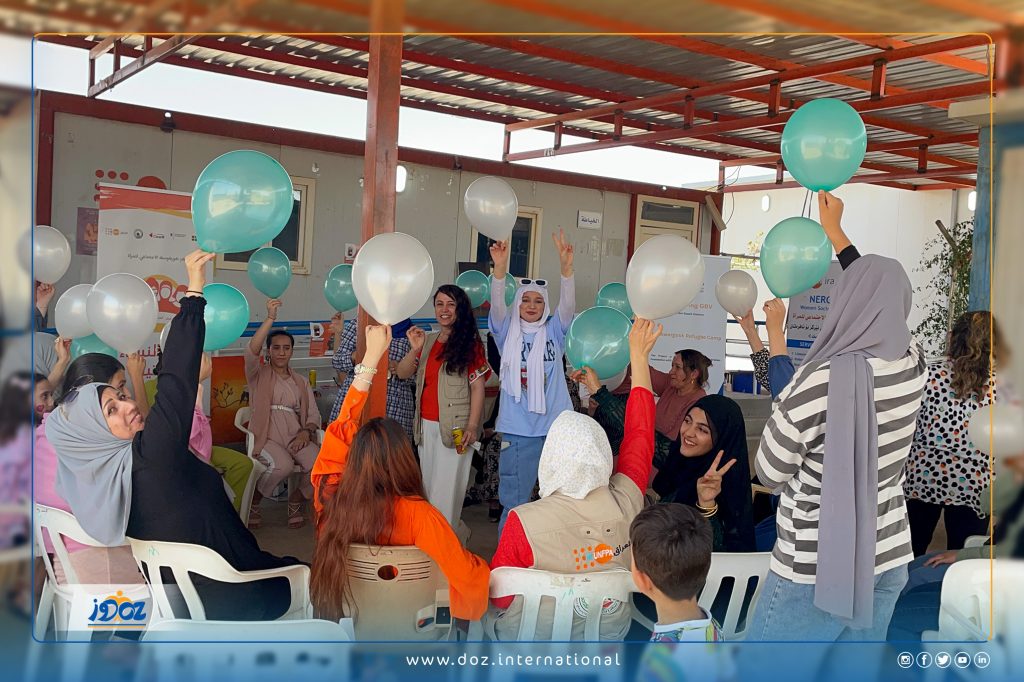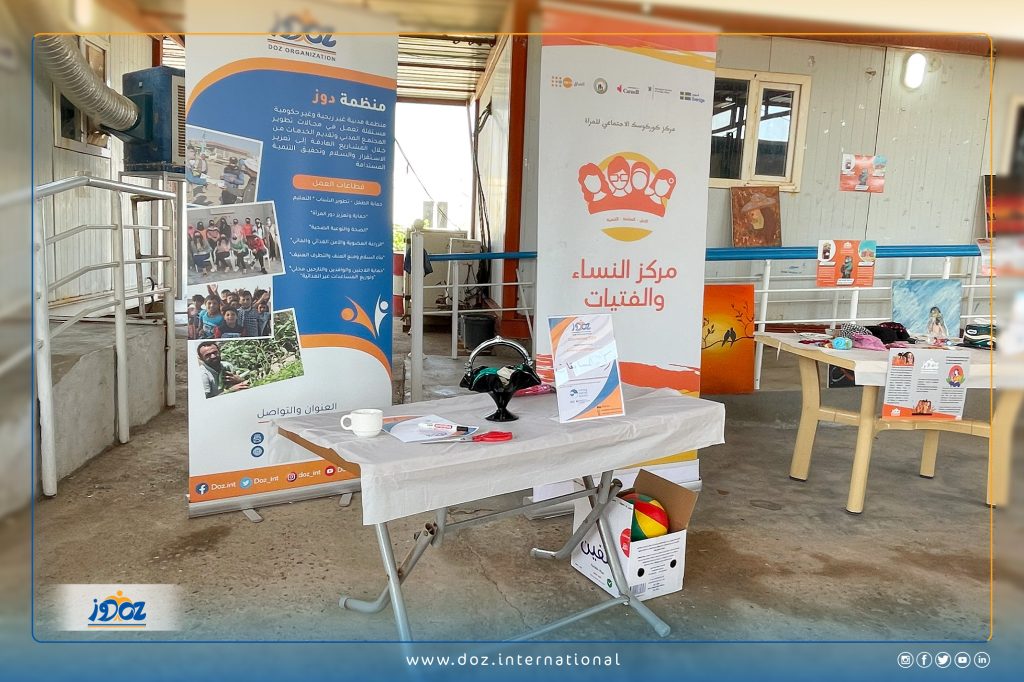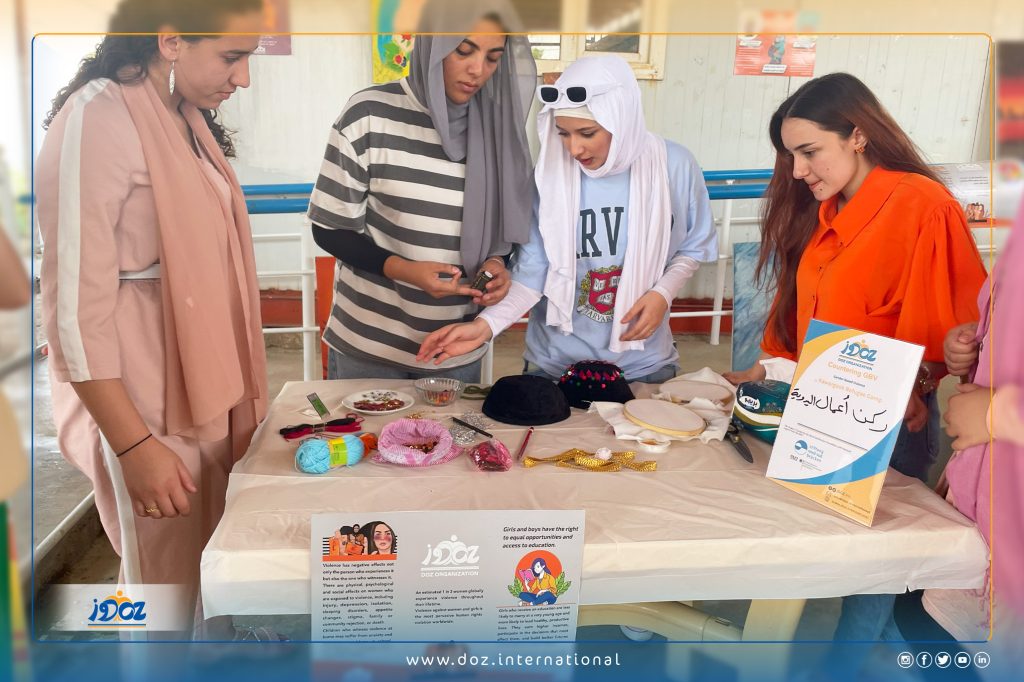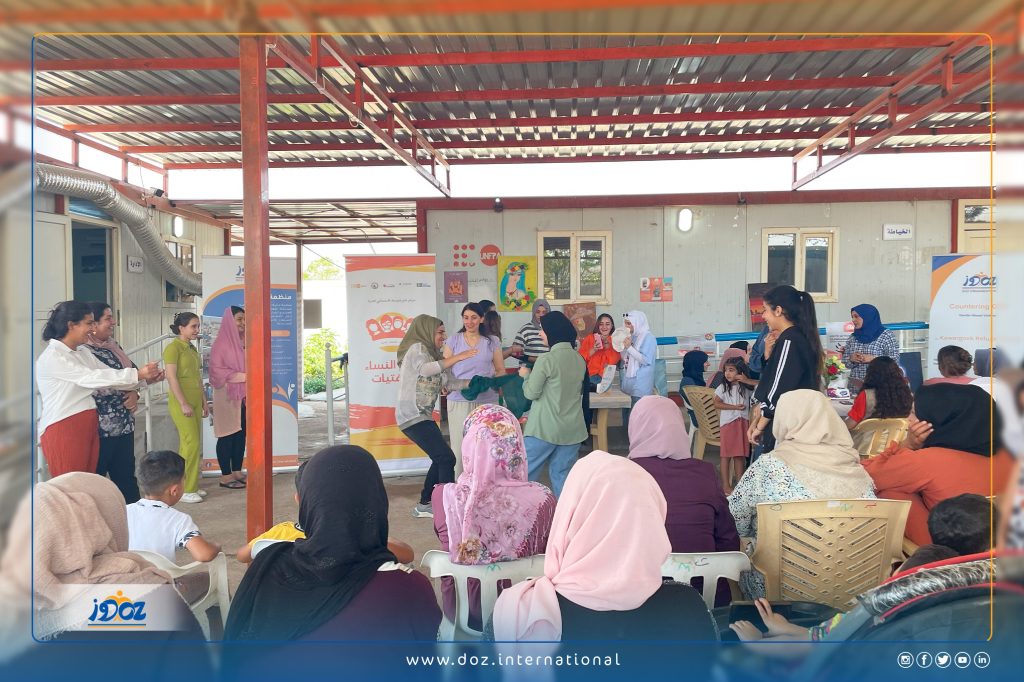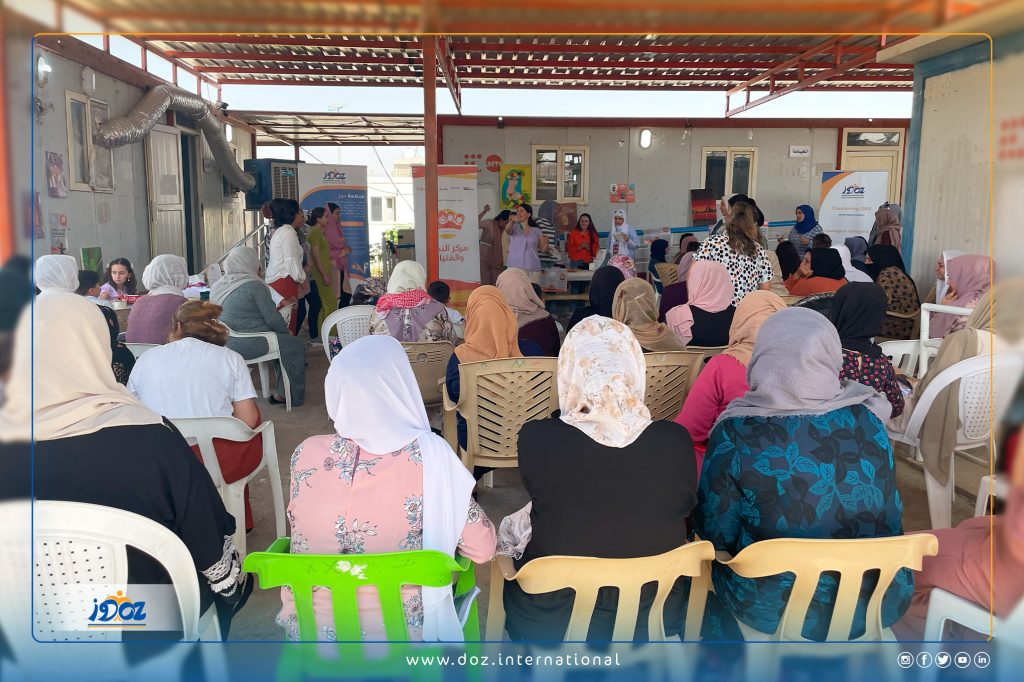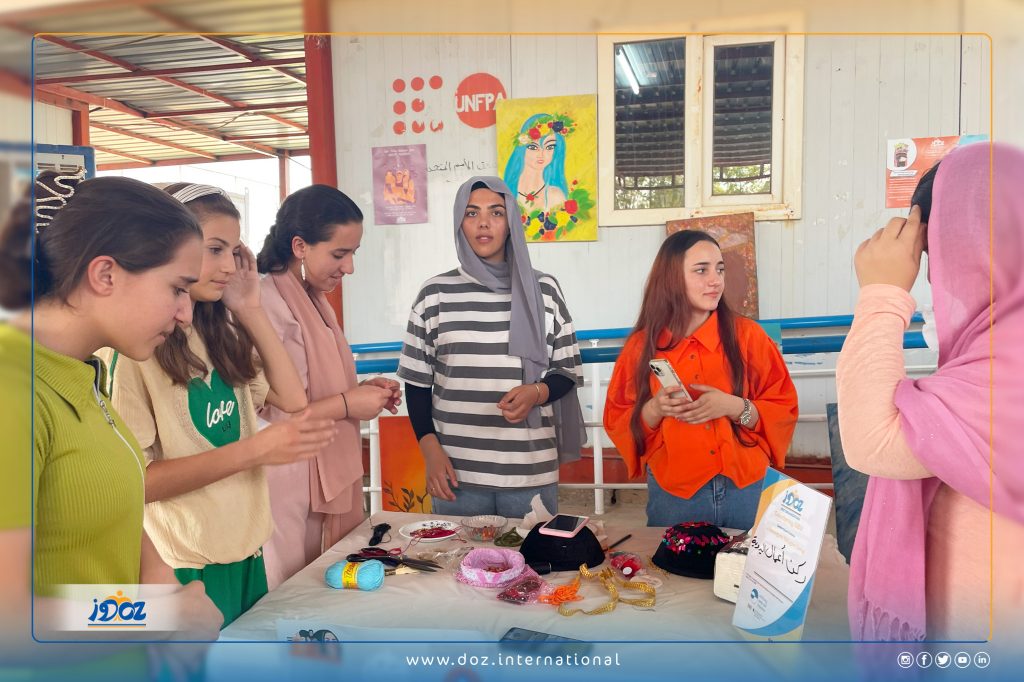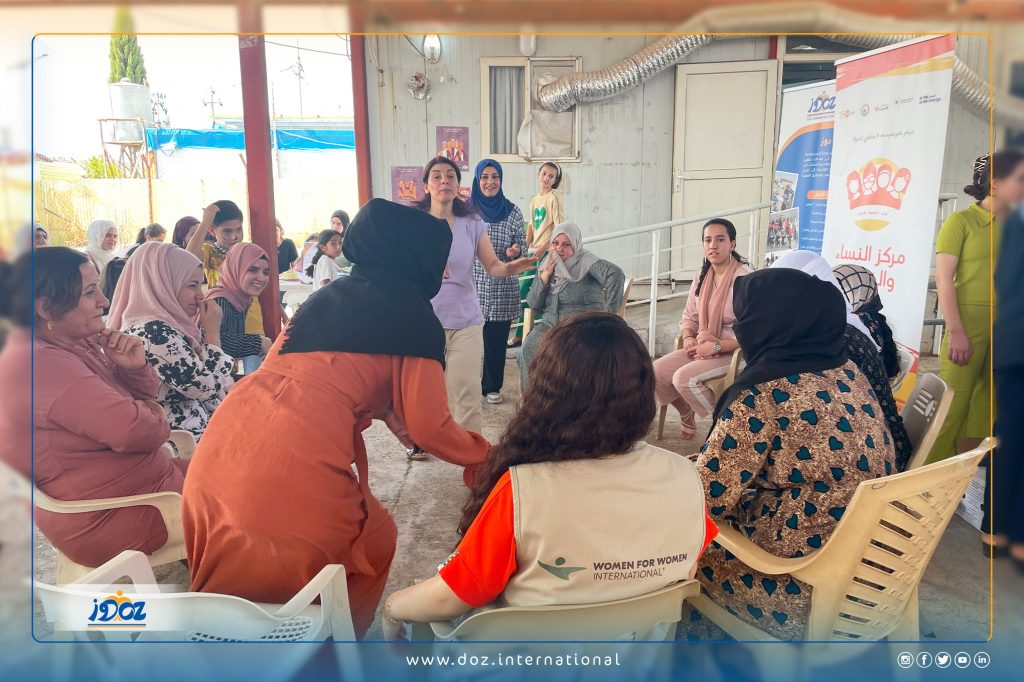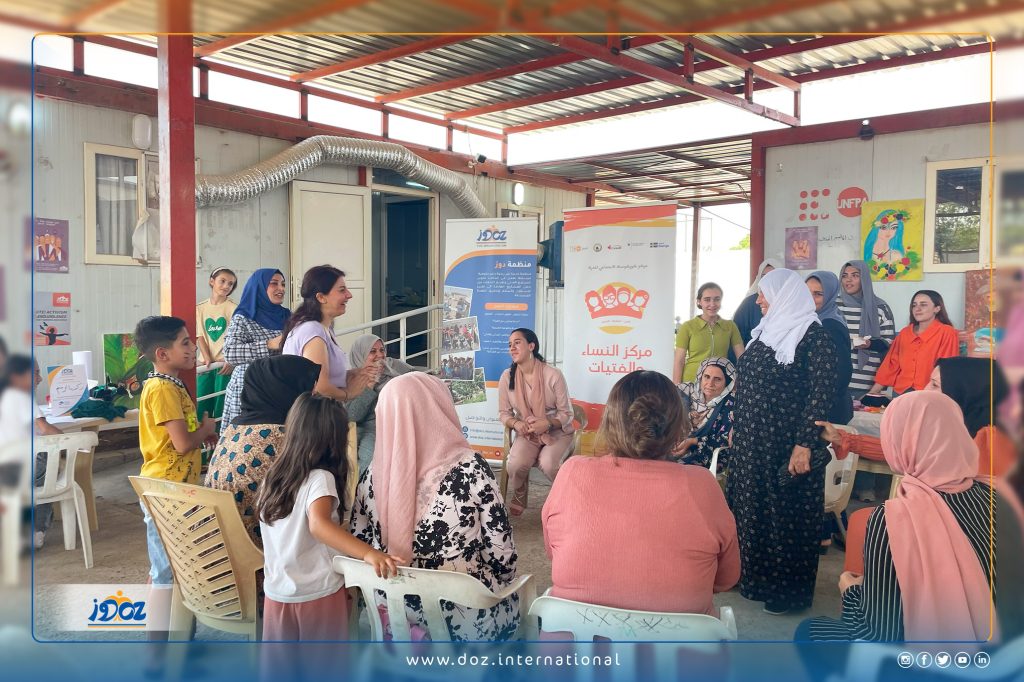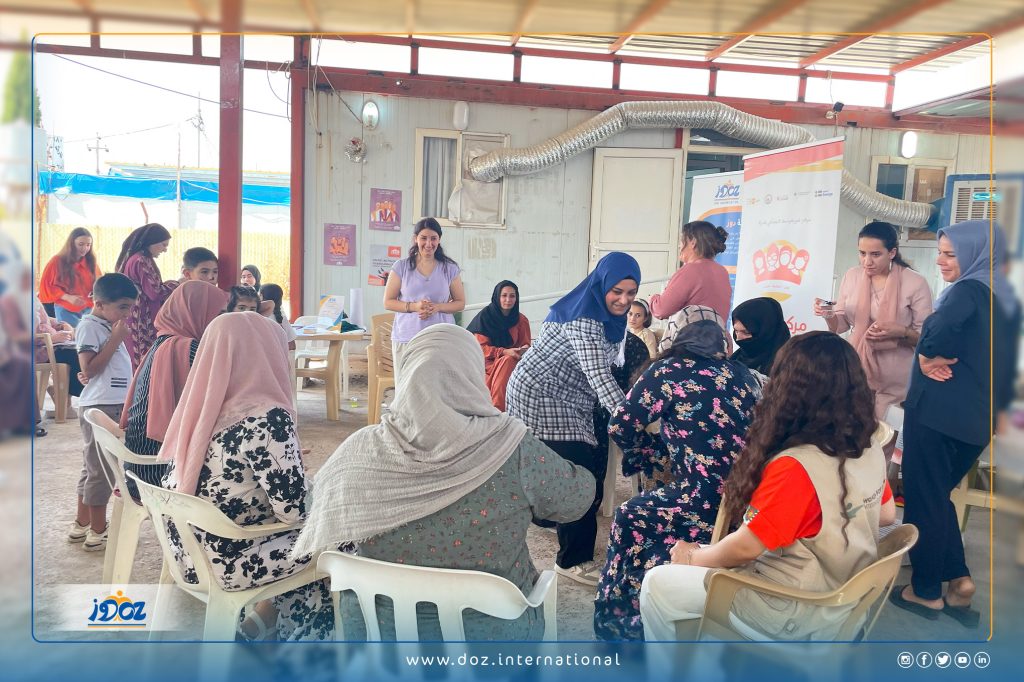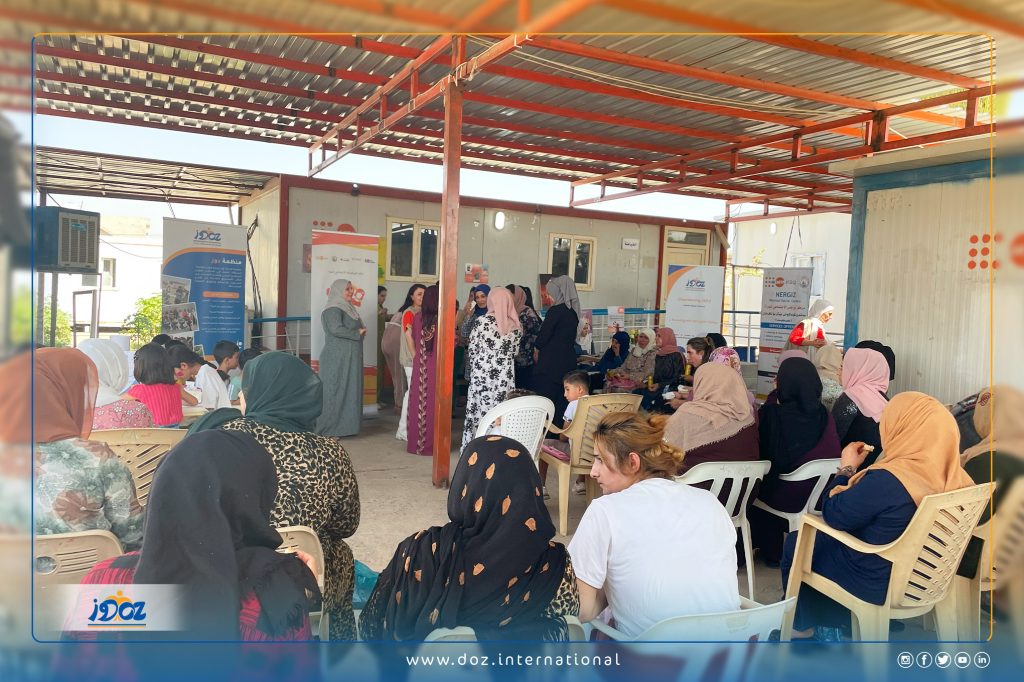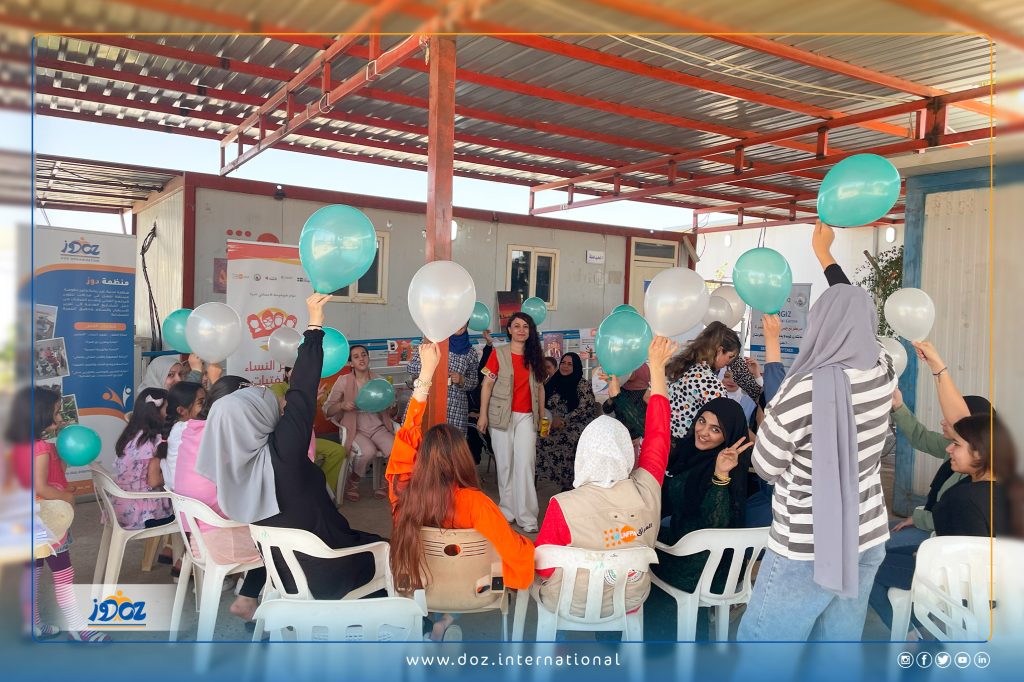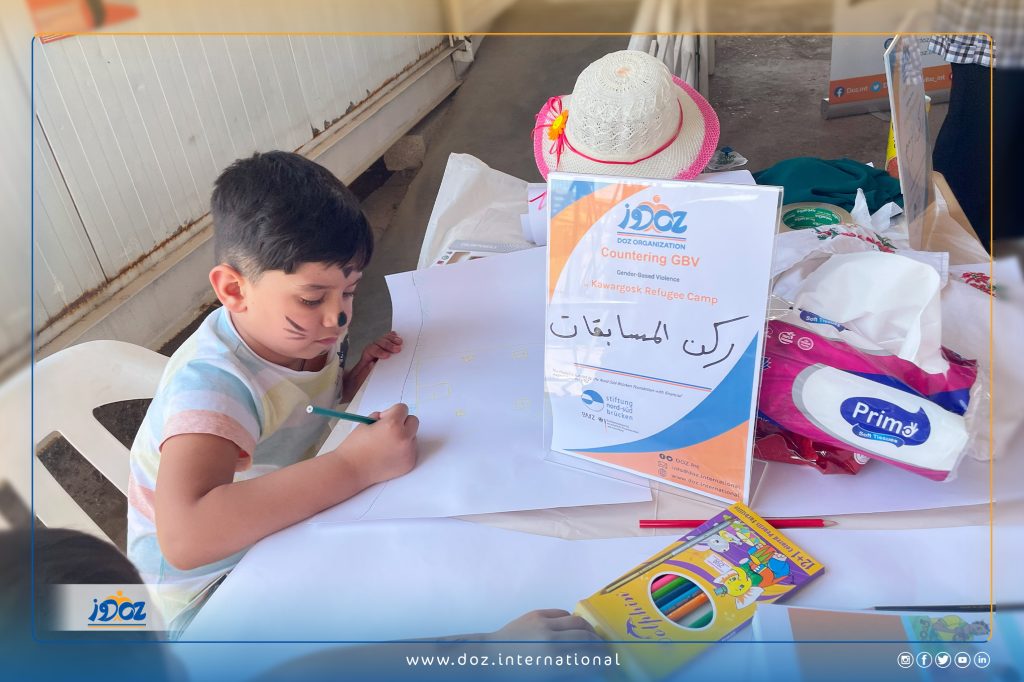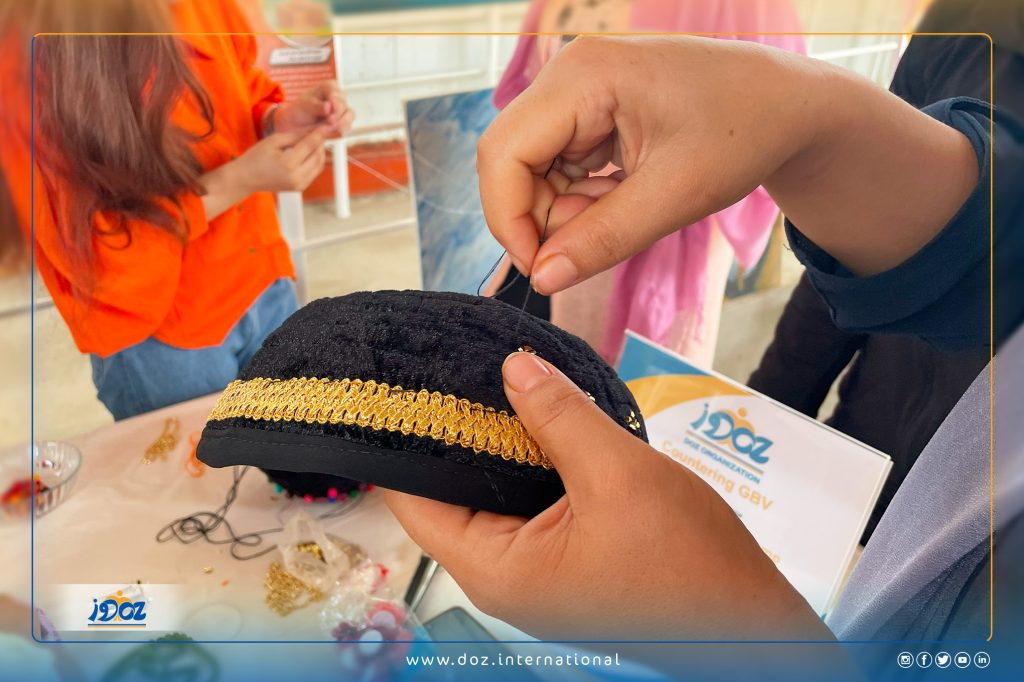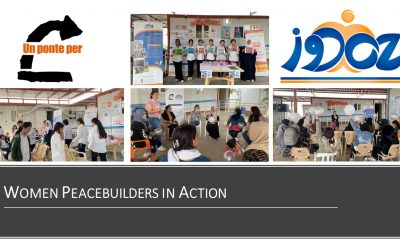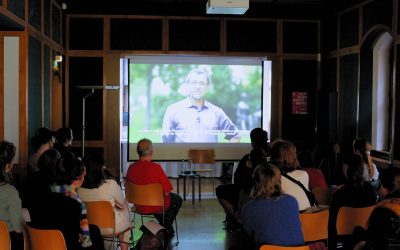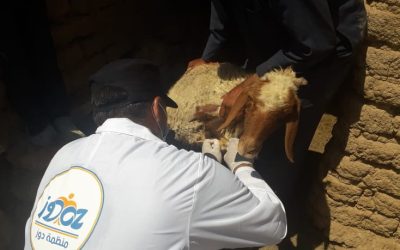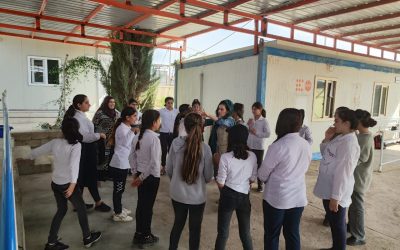Countering GBV within the Refugee Community in Erbil, Iraq
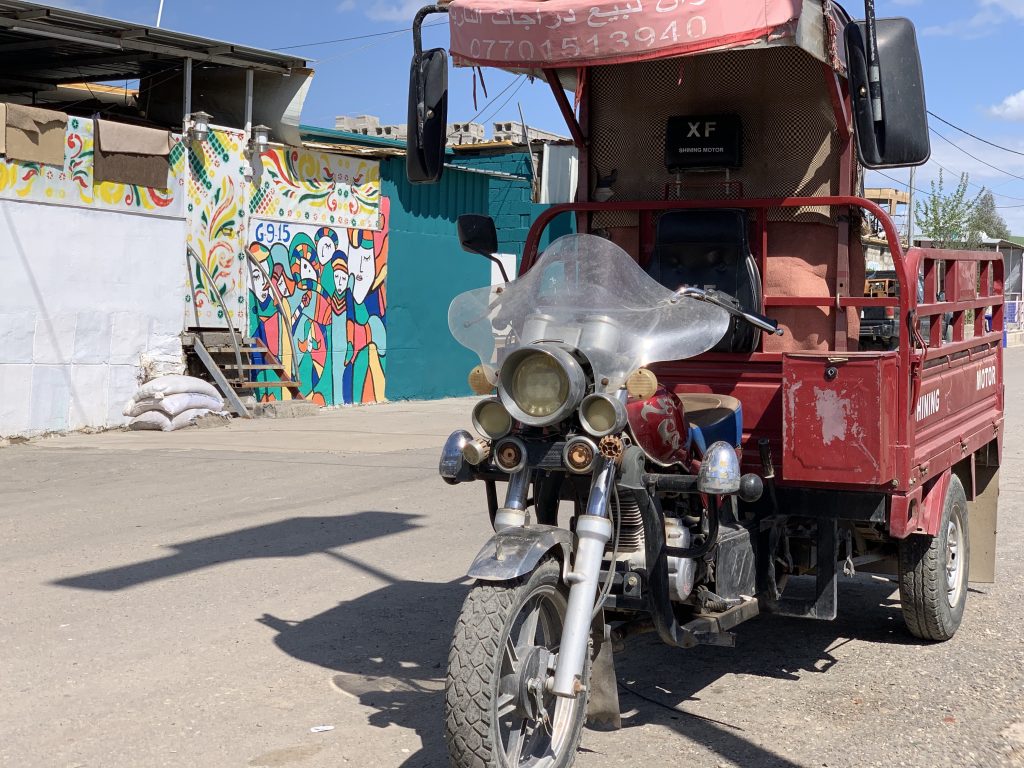
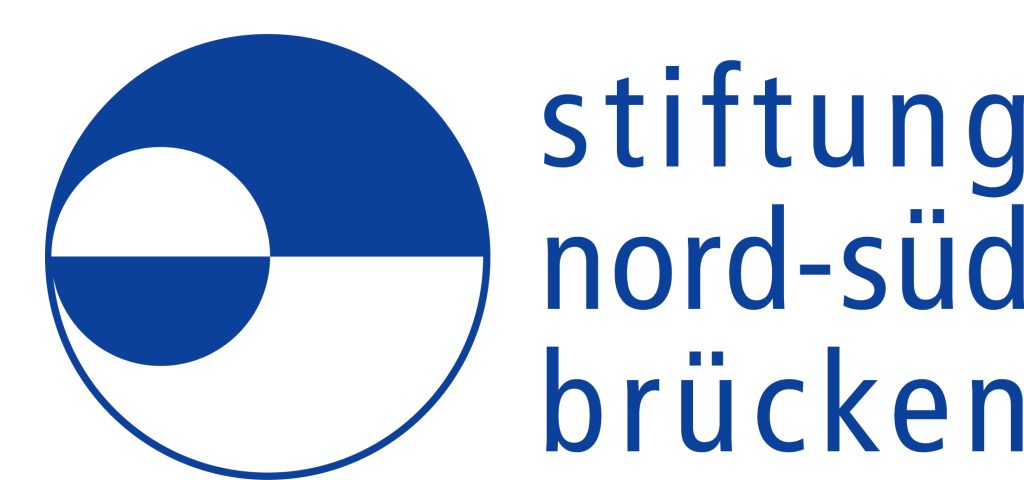
Funded by Nord Süd Brücken with financial support from BMZ

Project Summary
The project “Countering GBV within the Refugee Community in Erbil, Iraq” is funded by Foundation Nord Süd Brücken with financial support from BMZ – German federal Ministry for Development Cooperation. The project started in December 2022 and was accomplished in August 2023. The project was supervised by DOZ e.V. Germany and implemented by DOZ Iraq.
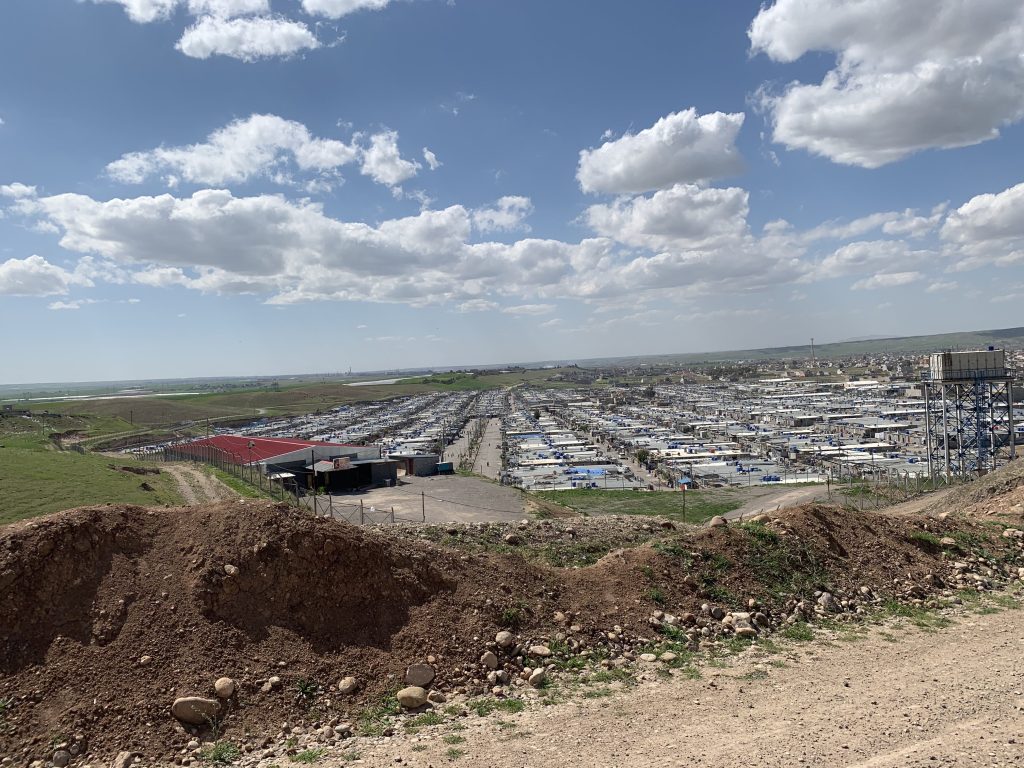
The project provided a safe space for self-empowerment and knowledge enhancement on combating gender-based violence (GBV) through 5 workshops for interested women and girls within Kawargosk refugee camp in Erbil. These participants are now potential trainers to expand knowledge on combating gender-based violence in their circles in the camp and transfer the knowledge they learned through Training for Trainers – ToTs Workshops to other active girls and women in the community. In addition, the awareness campaign shared knowledge and information about GBV challenges in the camp and raised awareness at a public event. Both helped to mobilize at the community level in the camp to further counter GBV cases and increase knowledge beyond the individual, thereby building strong alliances between generations and gender roles in the long run.
Results Achieved Under This Project
- 72 women were trained on how to deal with gender-related cases and shared their knowledge with other women in the refugee camp after the project.
- 200 people are aware of gender-based violence cases in the camp and advocate in their circles to combat gender-based violence through the public event and distributed awareness materials.
Activities Implemented Under This Project
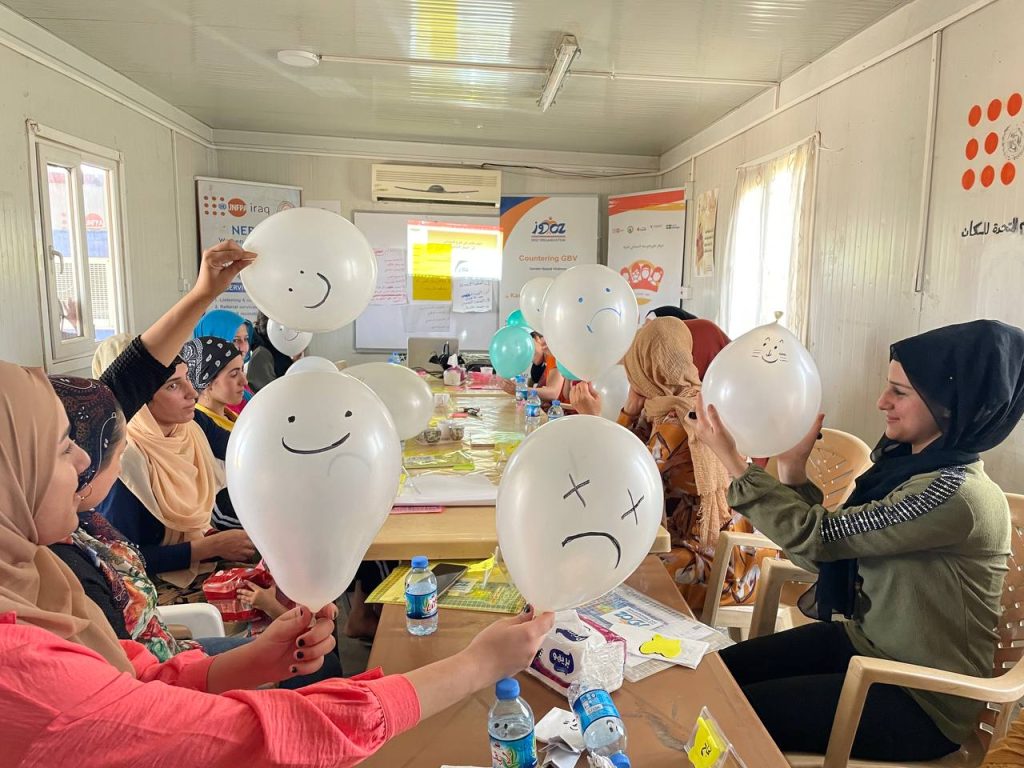
During the months of May, June, July, and August 2023, DOZ Iraq organized five training workshops on gender-based violence at the Women and Girls Center / Kawergosk Social Center for Women in the Kawergosk refugee camp in Erbil. The training workshops aimed to empower women and educate them about issues related to violence, Gender-based violence, and providing them with the resources and skills necessary to address and prevent GBV. These training workshops also aimed to create a safe space among the participants, highlighting the challenges and problems that society faces in facing gender-based violence, how to confront it, and work collaboratively towards finding effective and sustainable solutions.

The training workshops received a response from 72 participants from different backgrounds, including activists in women’s issues, university students, school teachers, and girls from the camp community who are interested in women’s issues. The training workshops included providing the participants with an introduction to gender-based violence through Introducing it and referring to its various types (rape, sexual assault, physical assault, forced marriage, underage marriage, etc.), misconceptions about gender-based violence were also discussed, and the root causes of gender-based violence were discussed, including the “system patriarchal and gender norms, power and control dynamics, social and cultural factors, economic factors, and other causes) that have an impact on individuals and society and contribute to the exacerbation of GBV.
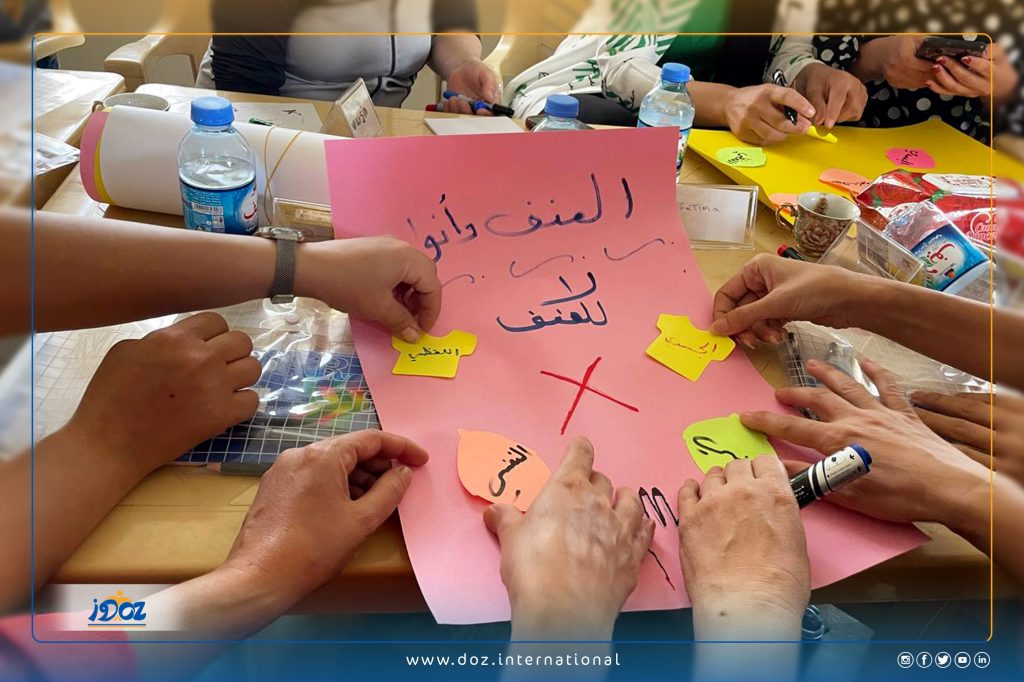
On the other hand, the training workshops discussed the effects of gender-based violence, including (psychological, social, and economic effects, which in turn affect victims of gender-based violence and society in general). Within this framework, the discussions between the participants and the trainer dealt with strategies for preventing gender-based violence, including (promoting equality and respectful relationships, addressing wrong societal norms through intensification of awareness and educational programs and campaigns targeting the community, empowering women and enhancing their role in engaging in Areas of decision-making to reduce discrimination and violence to which they are exposed, the need to include awareness of equality issues in educational curricula to spread human values and contribute to building a more just and tolerant society).
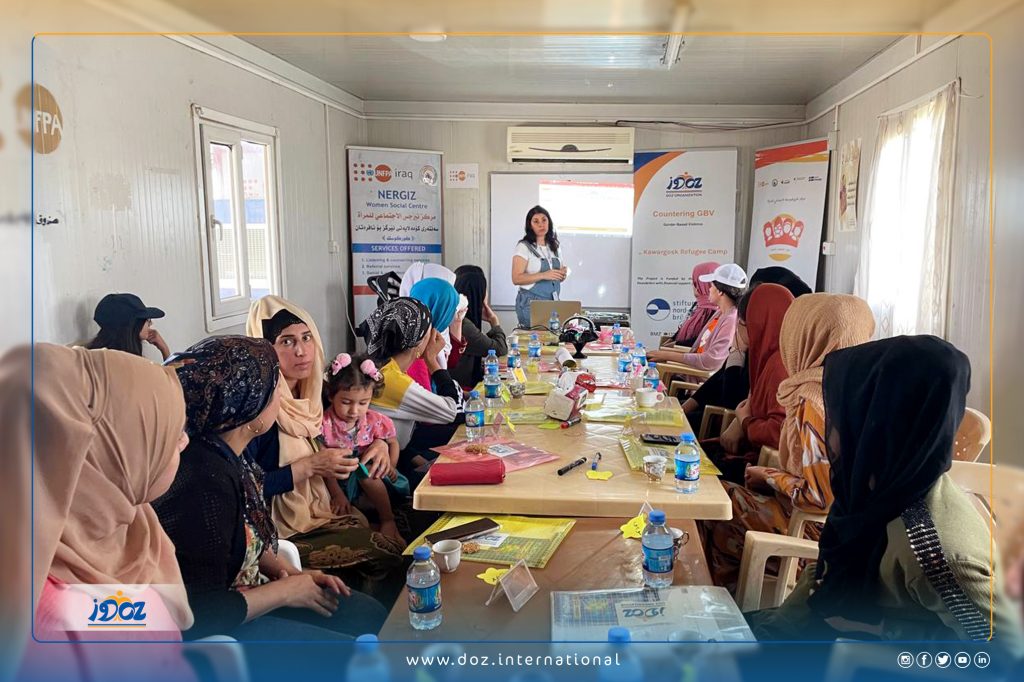
The training workshops included many practical sessions among the participants by dividing them into small working groups. These working groups received active participation in exchanging information and recounting many experiences and stories that the participants themselves faced during their family, professional, and educational journey, during the refugee phase. And they left their homes and cities, as these shared experiences all fall within the framework of gender-based violence issues, and the participants stressed the importance of these group discussions among them, as it was an opportunity to exchange experiences as well as ideas and opinions on the issue of gender-based violence.
In addition, the working groups among the participants received many recommendations from the participants, which included:
– Organizing more workshops and awareness discussion sessions on gender-based violence to spread awareness among the community and enhance their participation.
– Providing more safe spaces for women and girls in the refugee and displaced persons camps, and in the neighborhoods of the local community, as these spaces are considered a suitable environment for women and girls to develop and empower themselves.
– Providing training opportunities (vocational training) that target women and girls to empower them economically and have an effective role in society.
– Updating and developing educational and training programs to enhance knowledge and skills in dealing with gender-based violence issues.
– Supporting research and academic studies on the issue of gender-based violence to provide a database for activists working in this field.
– Enhancing cooperation between governmental and non-governmental institutions to achieve positive results in combating gender-based violence.
These workshops on gender-based violence witnessed active and fruitful participation by the participants within the workshops, as they included the participation of success stories by the participants and the exchange of information. on gender to reduce this negative phenomenon, and there was confirmation by them that this is a kind of workshop that contributes to empowering them and developing their skills and giving them the strength to have a positive participation within society to work on combating gender-based violence and achieving positive standardization in the communities to which they belong .
Photo Highlights During First Workshop
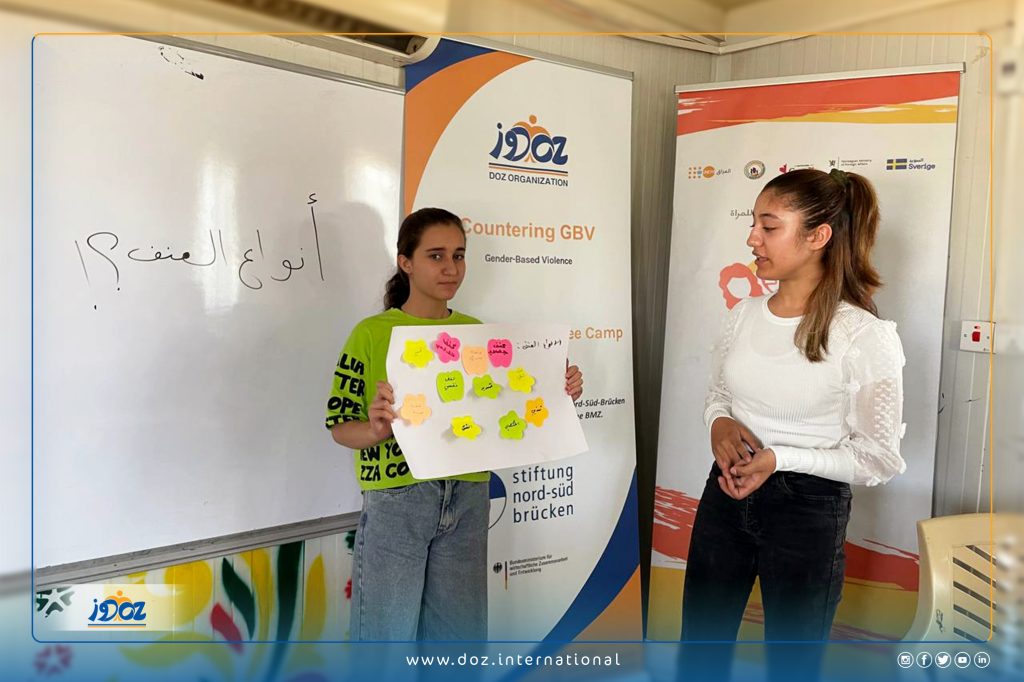
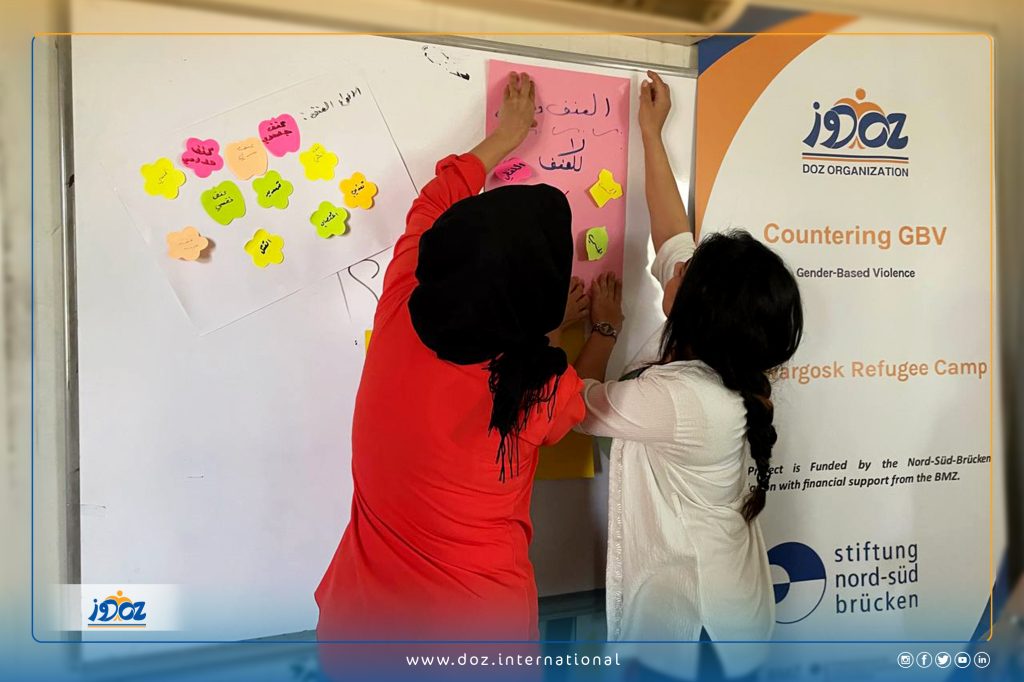
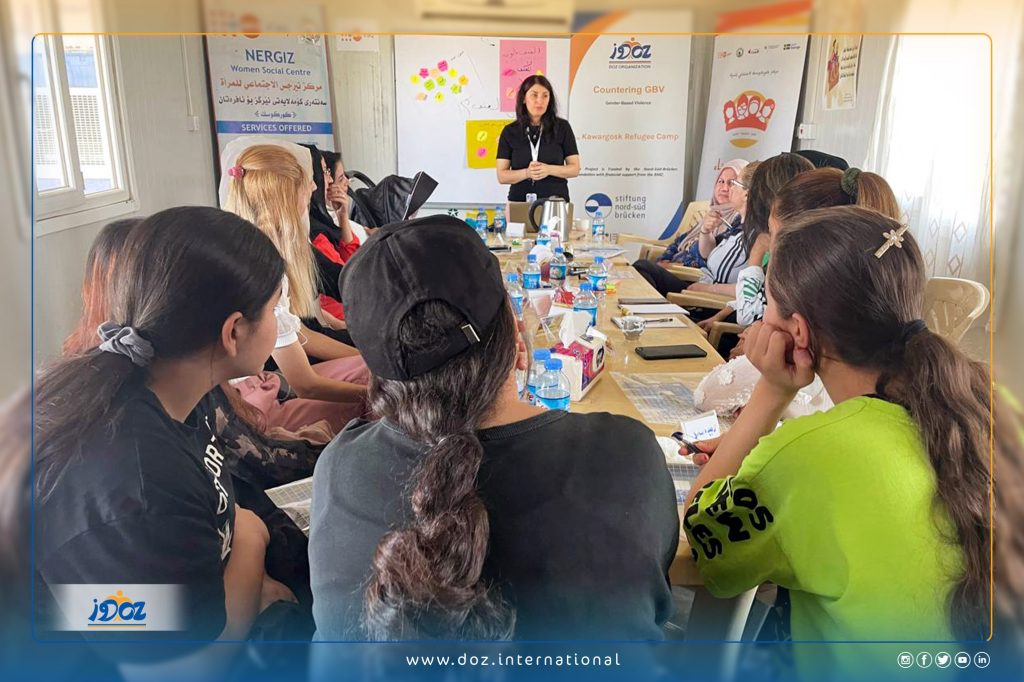
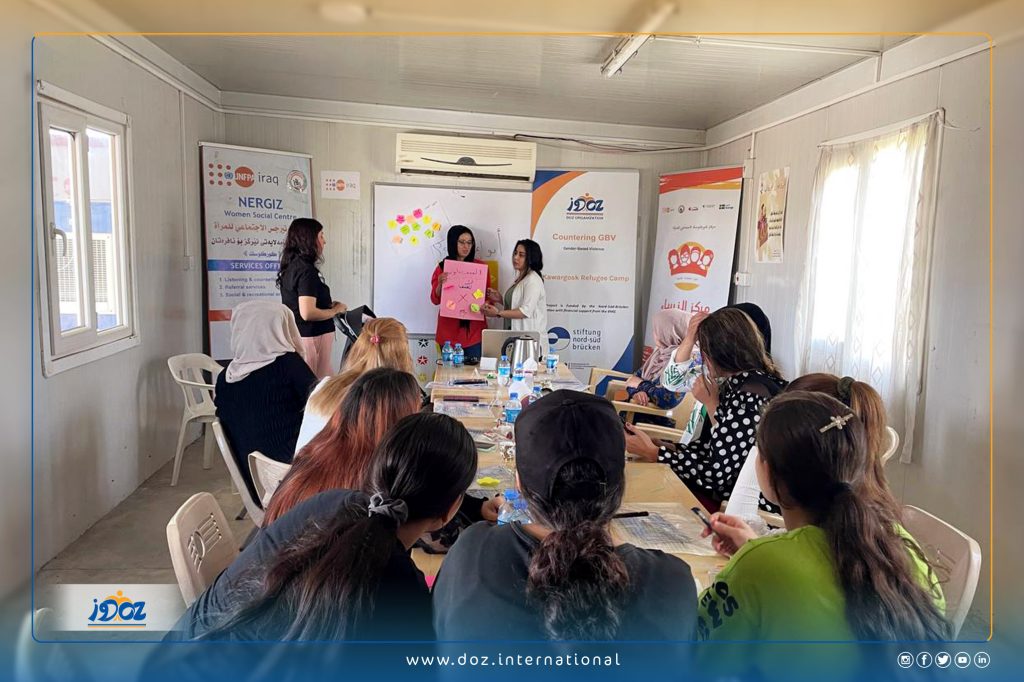
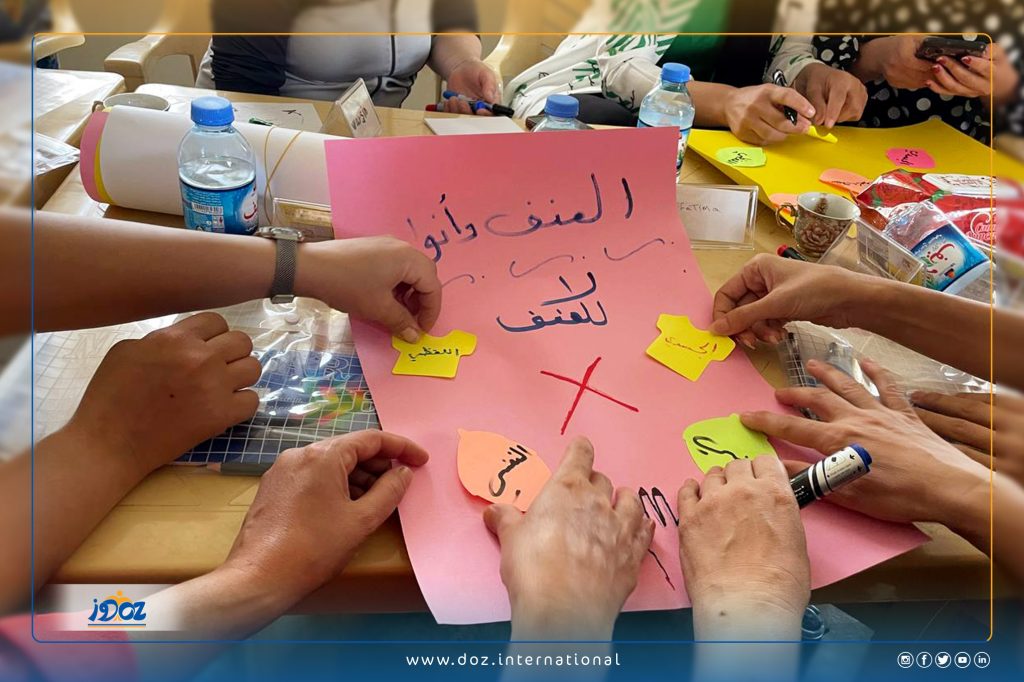
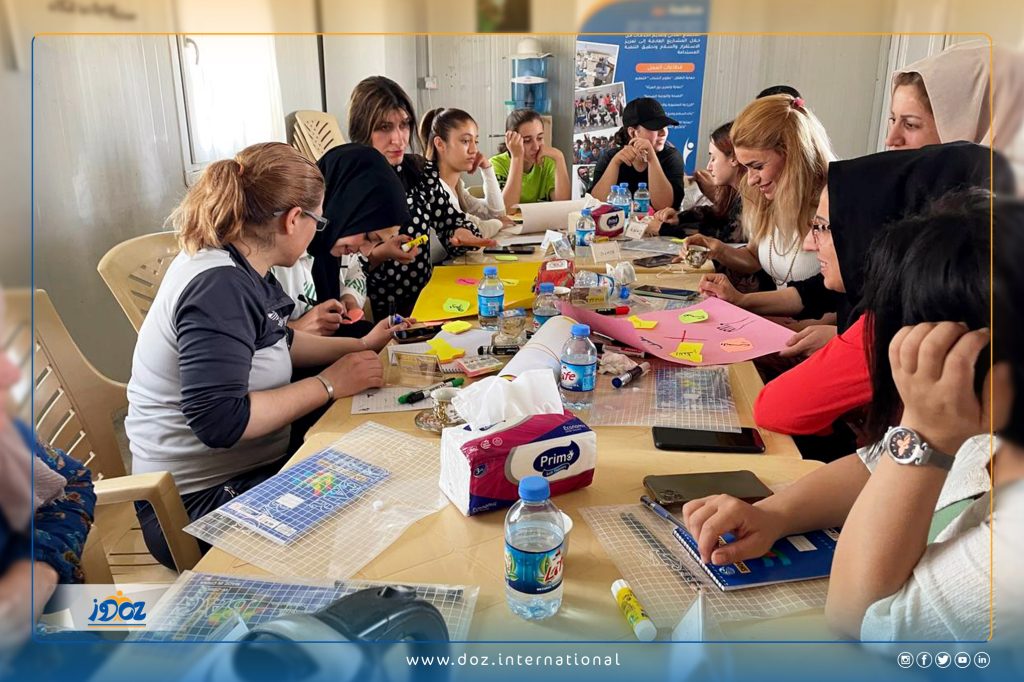
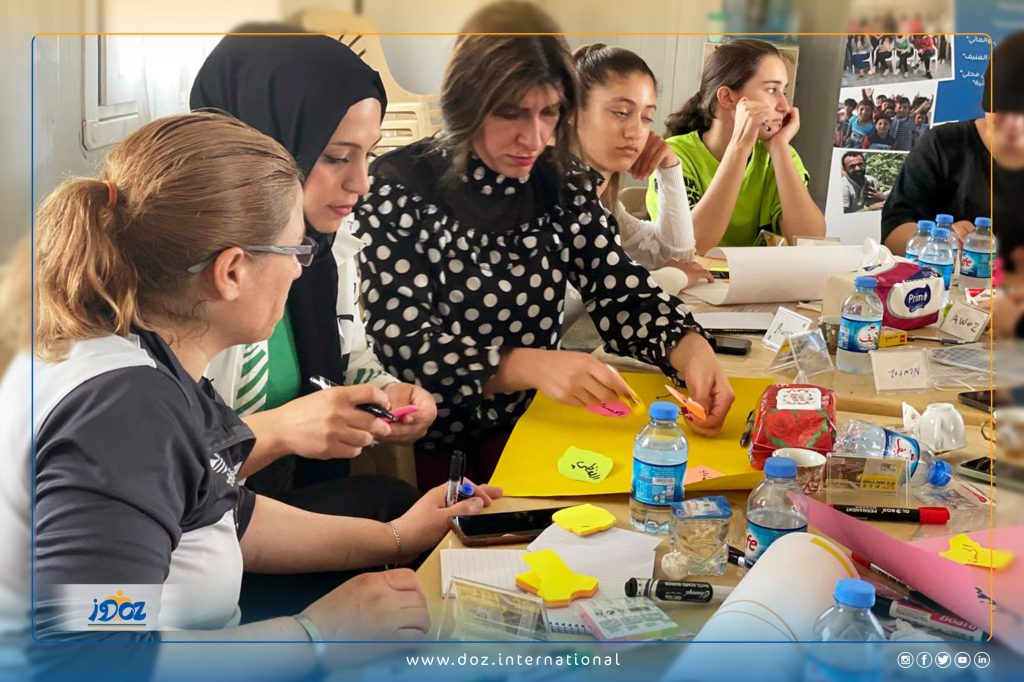
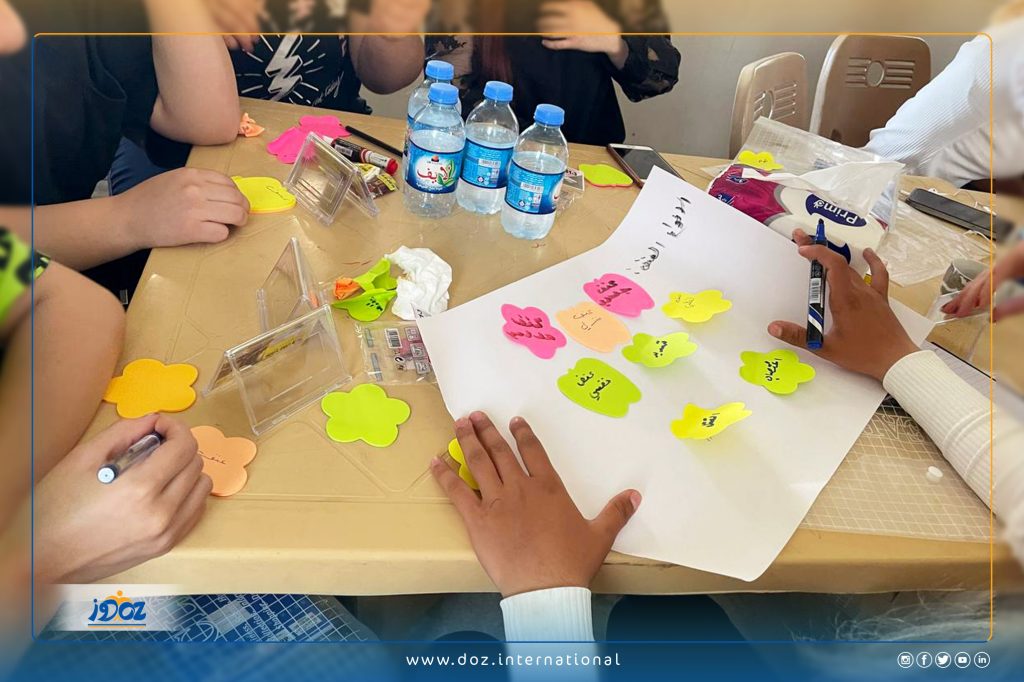
Photo Highlights During Second Workshop
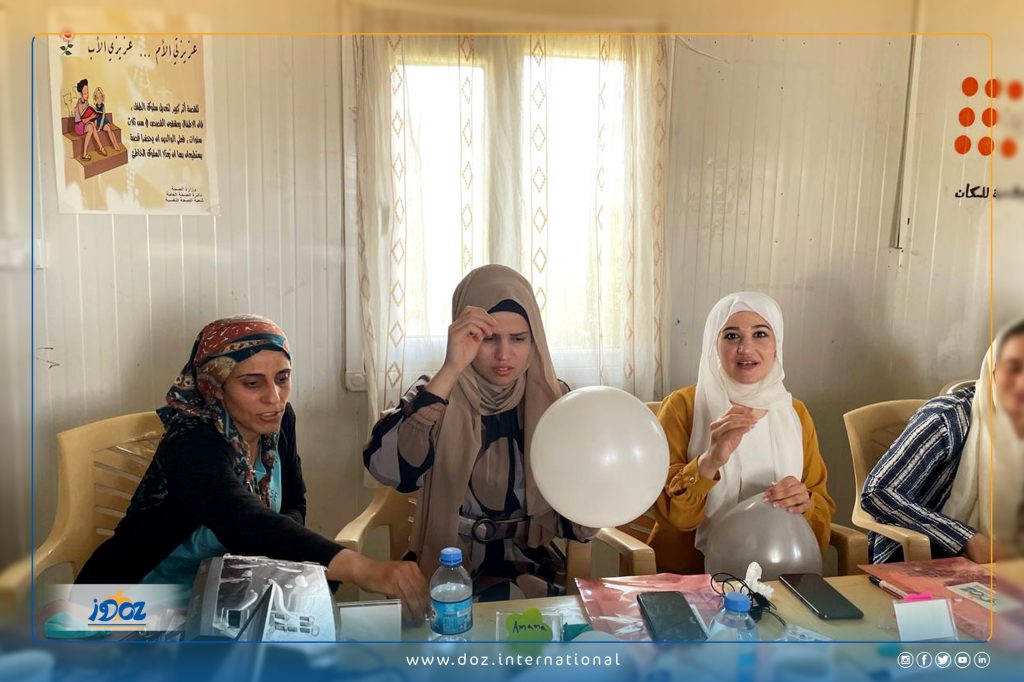
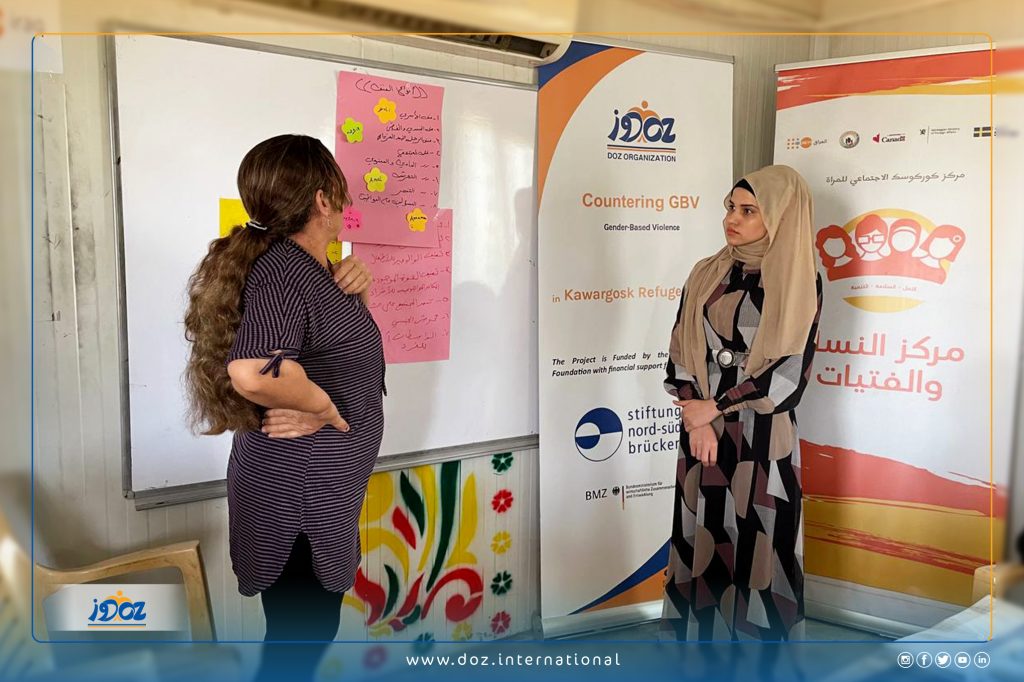
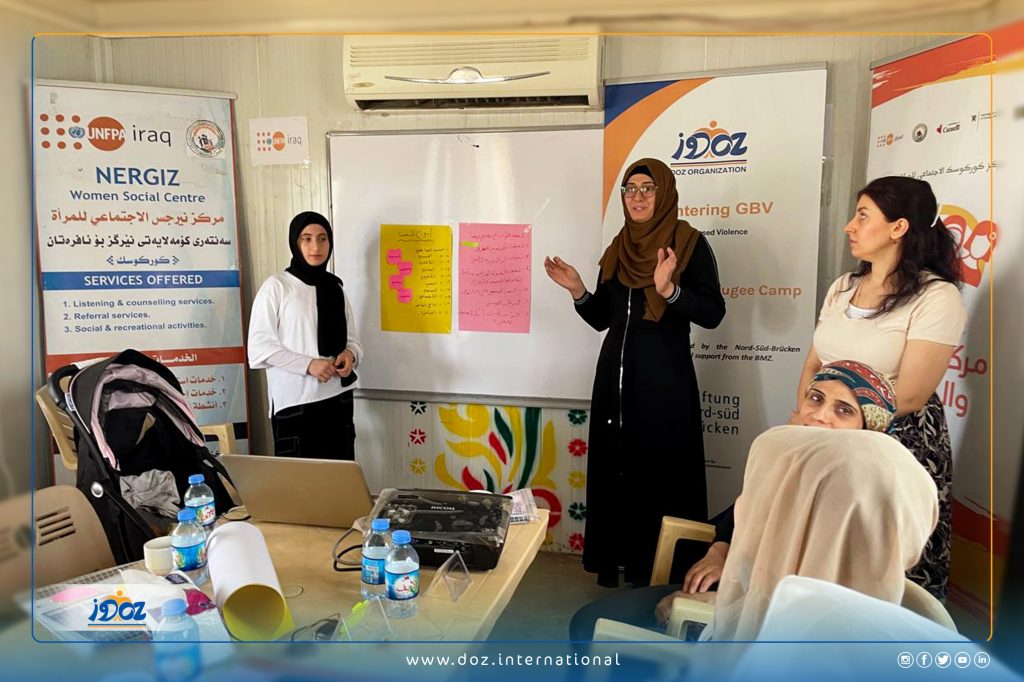
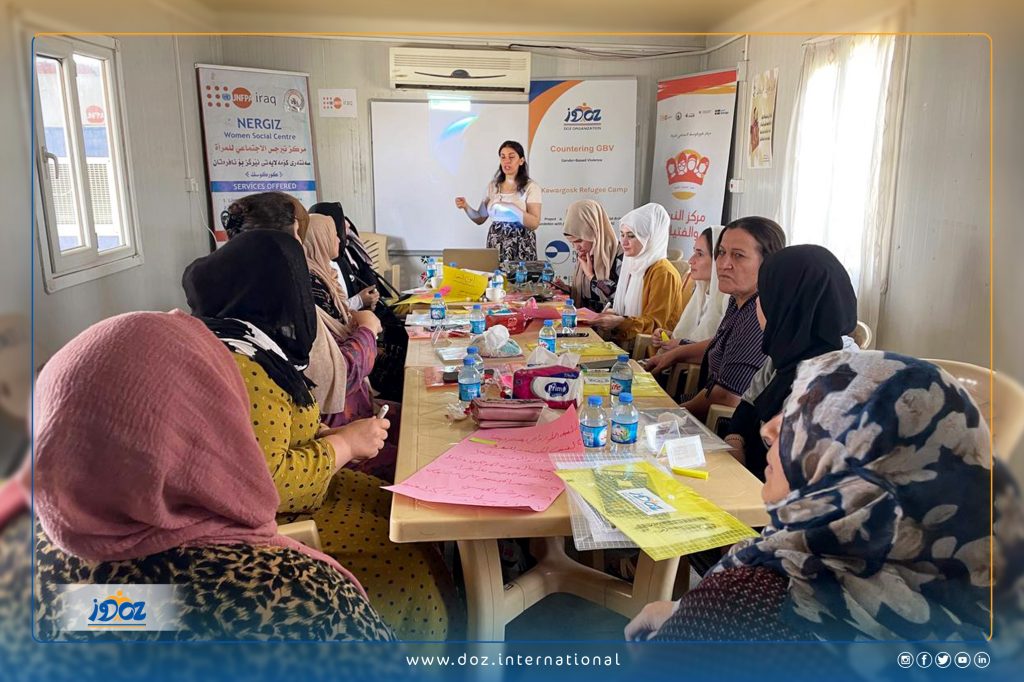
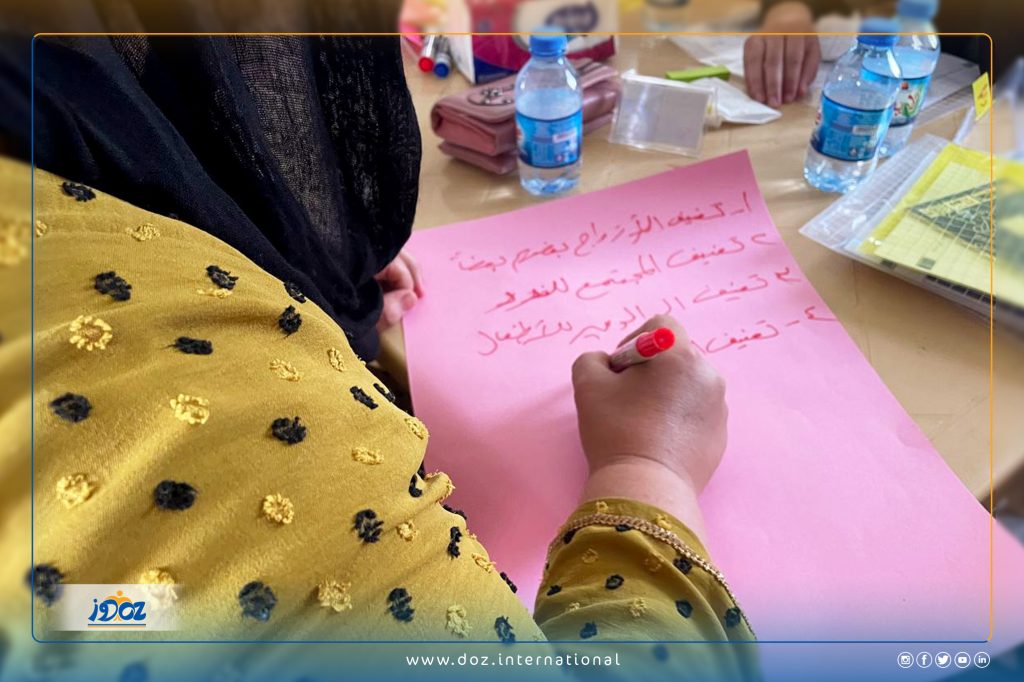
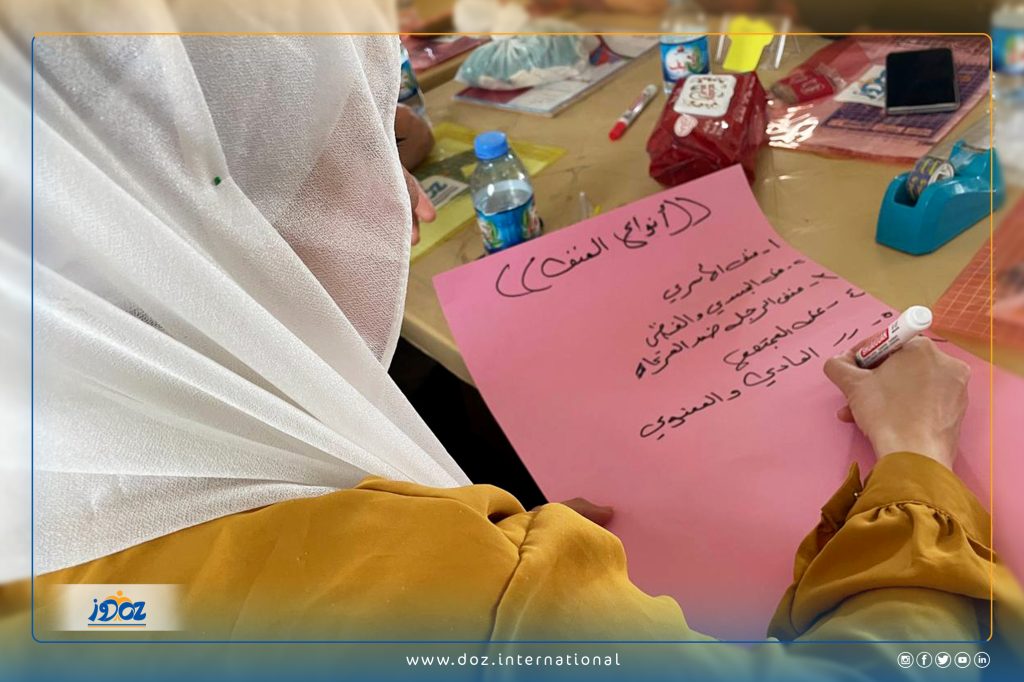
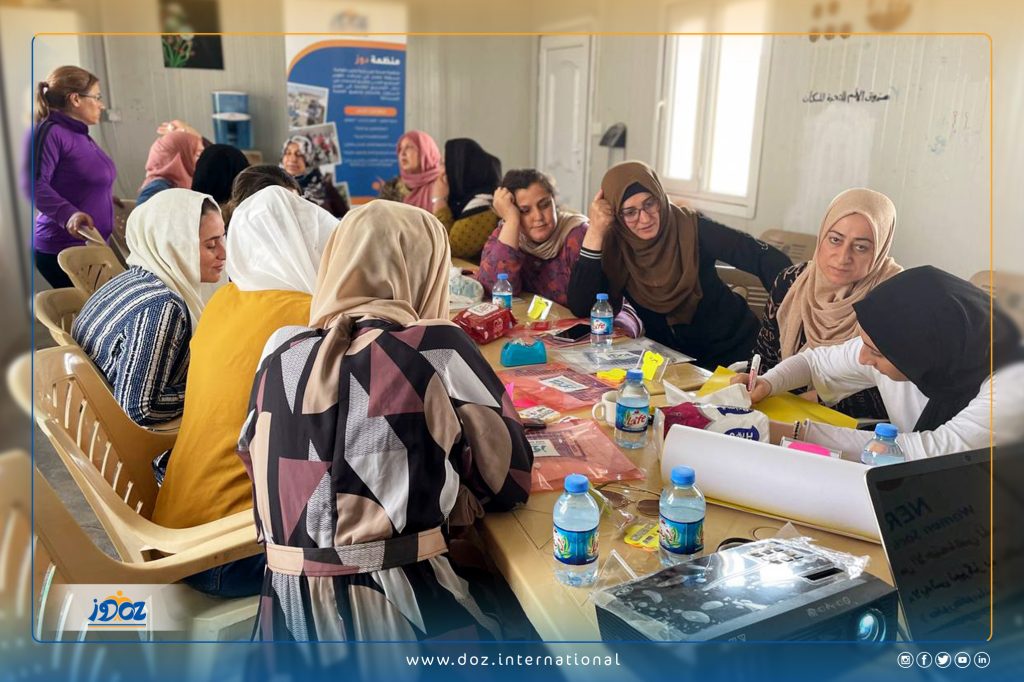
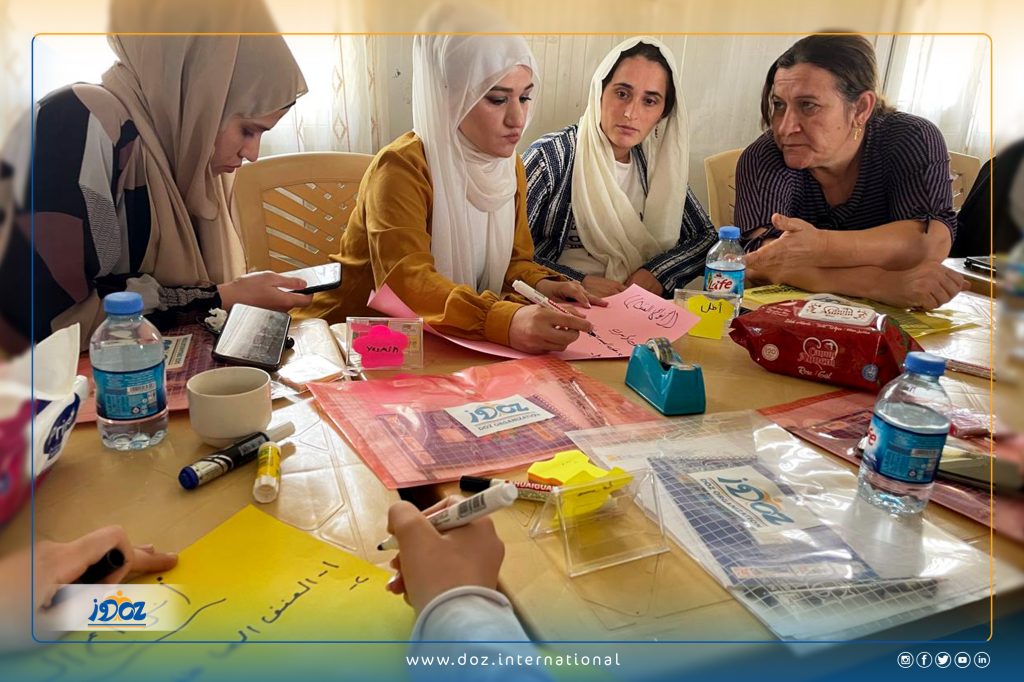
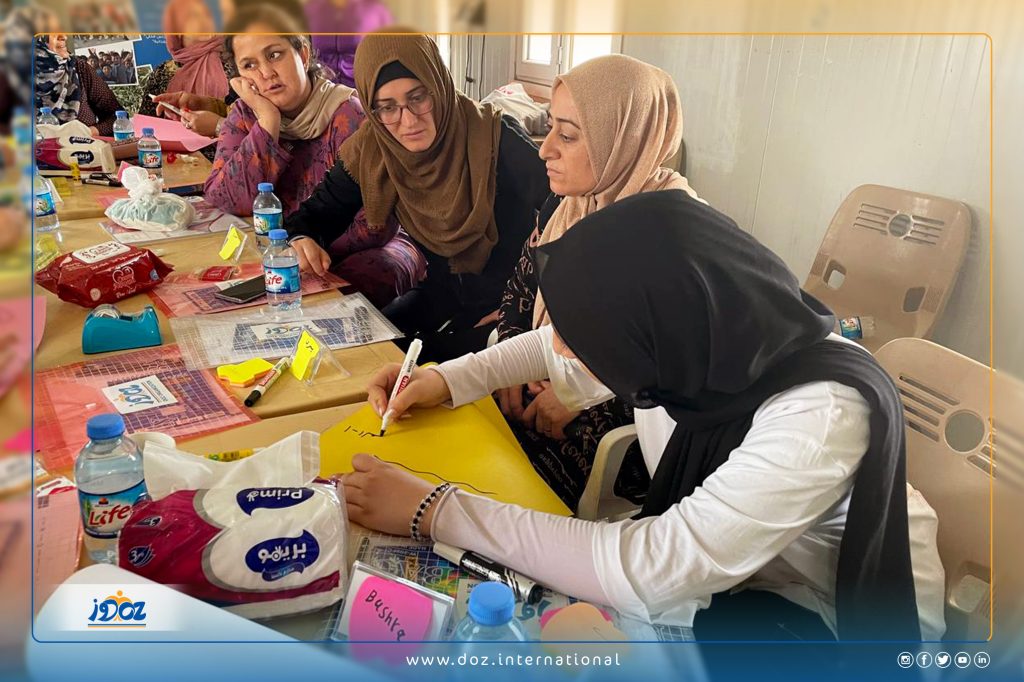
Photo Highlights During Third Workshop
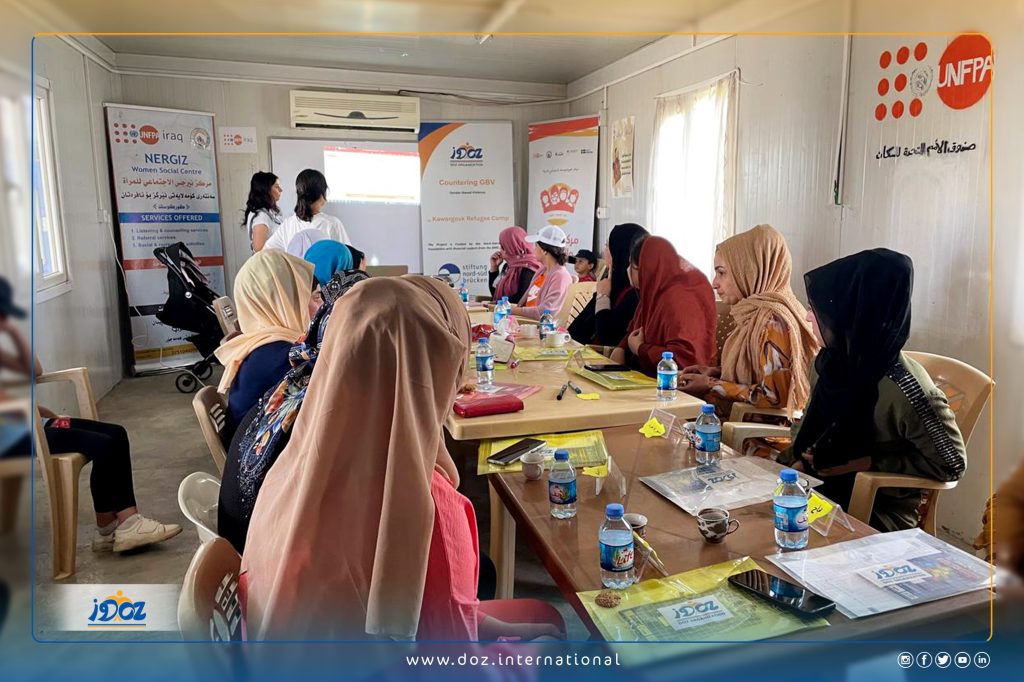
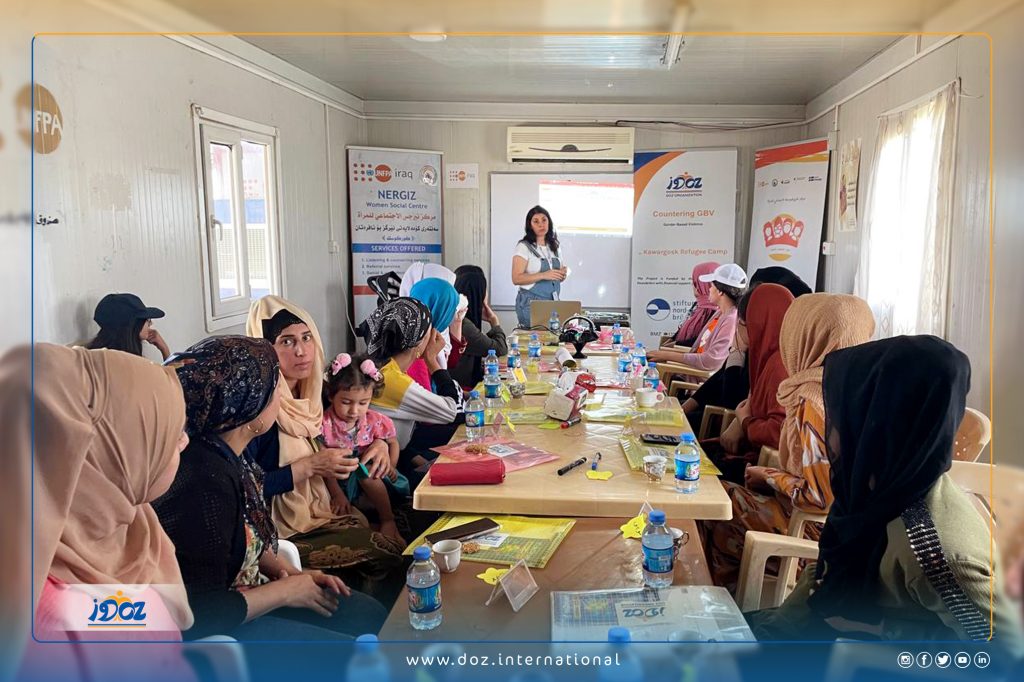
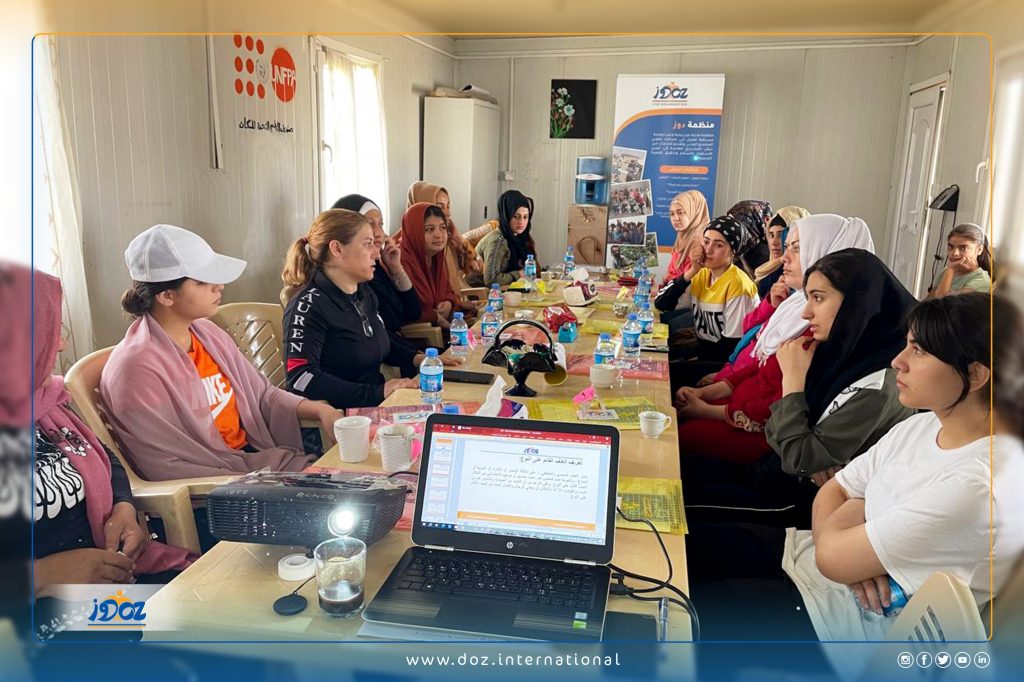
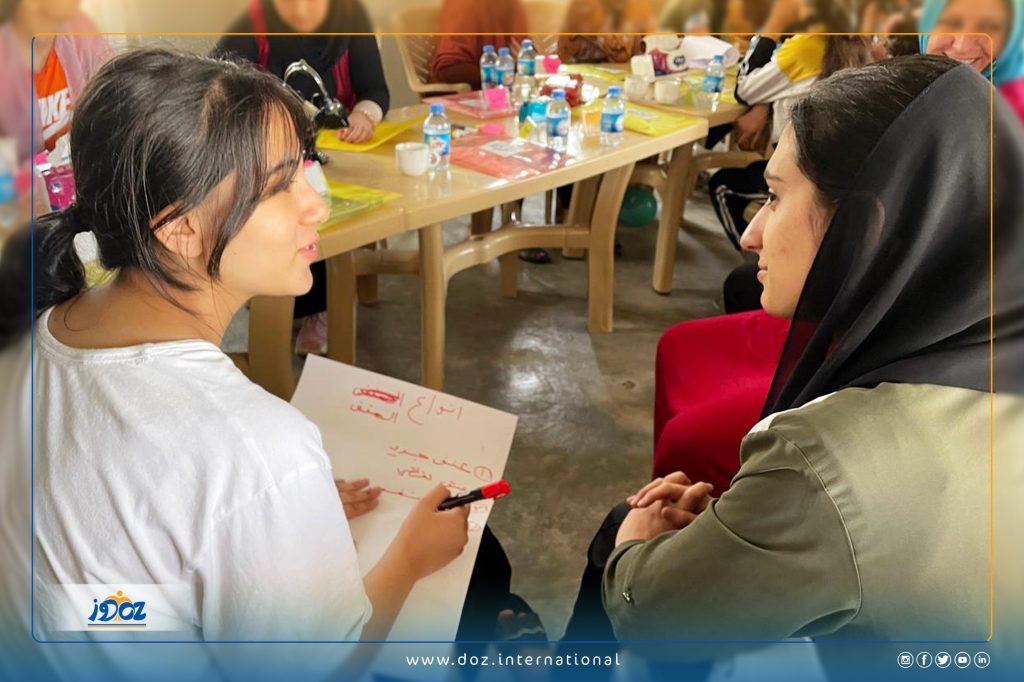
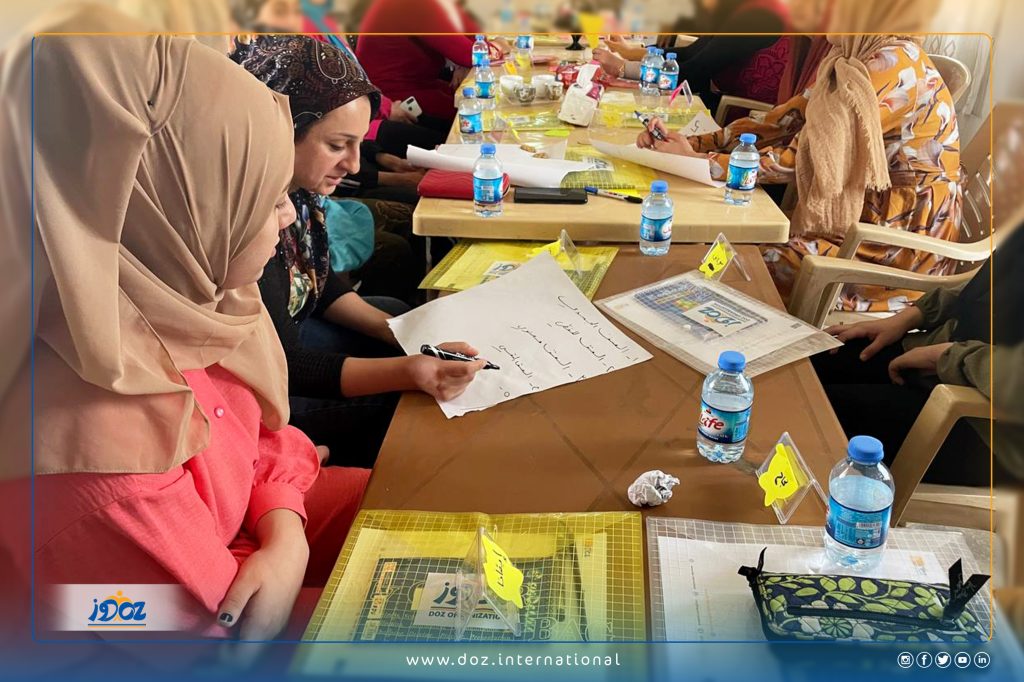
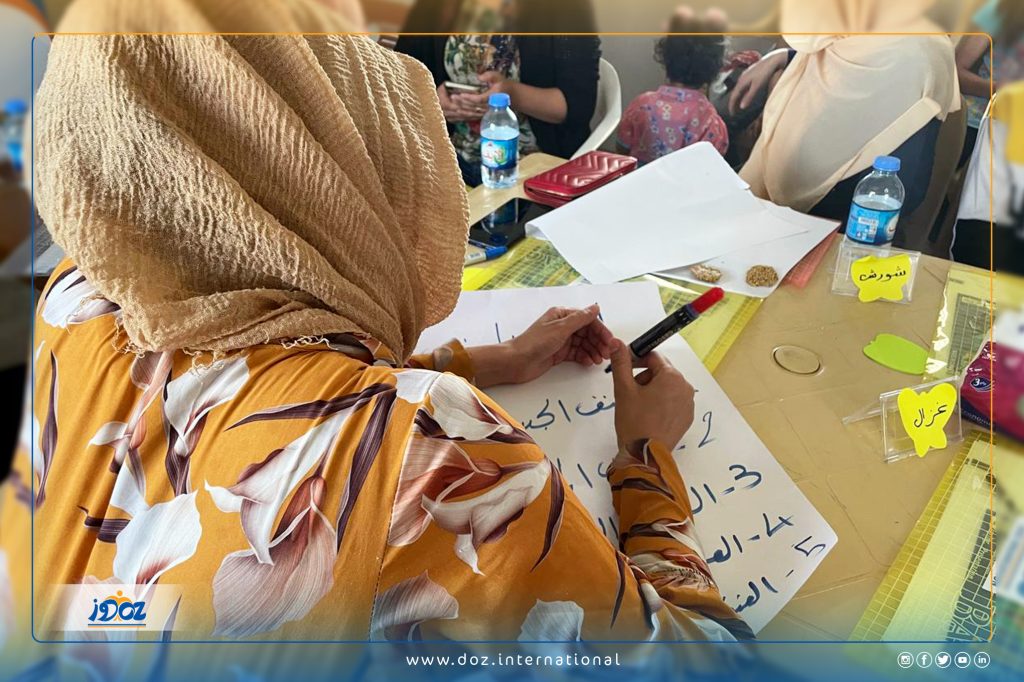
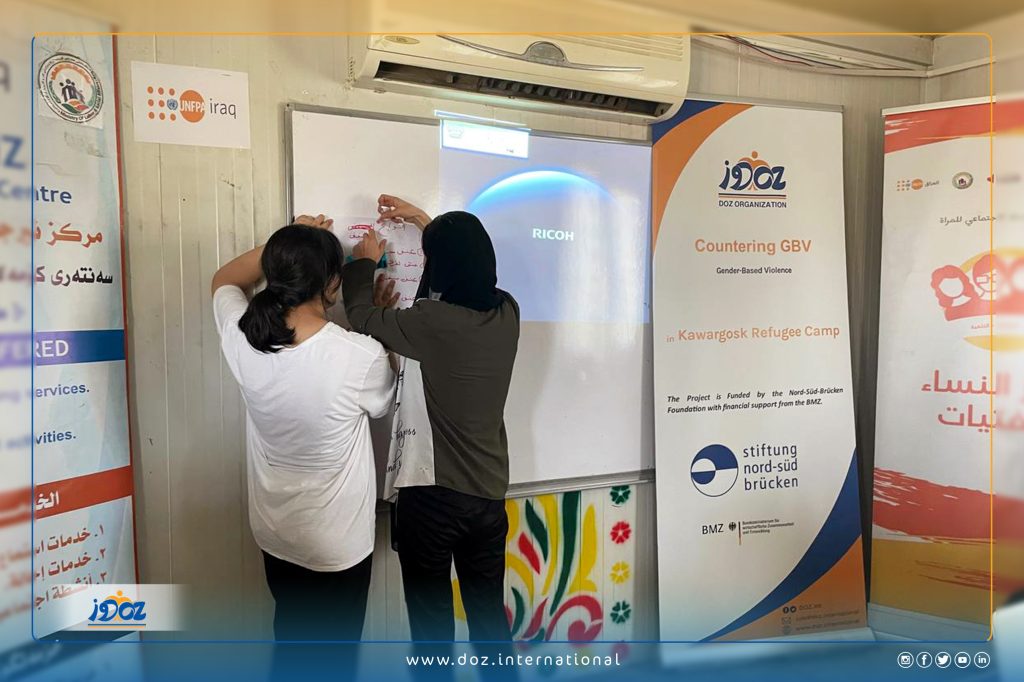
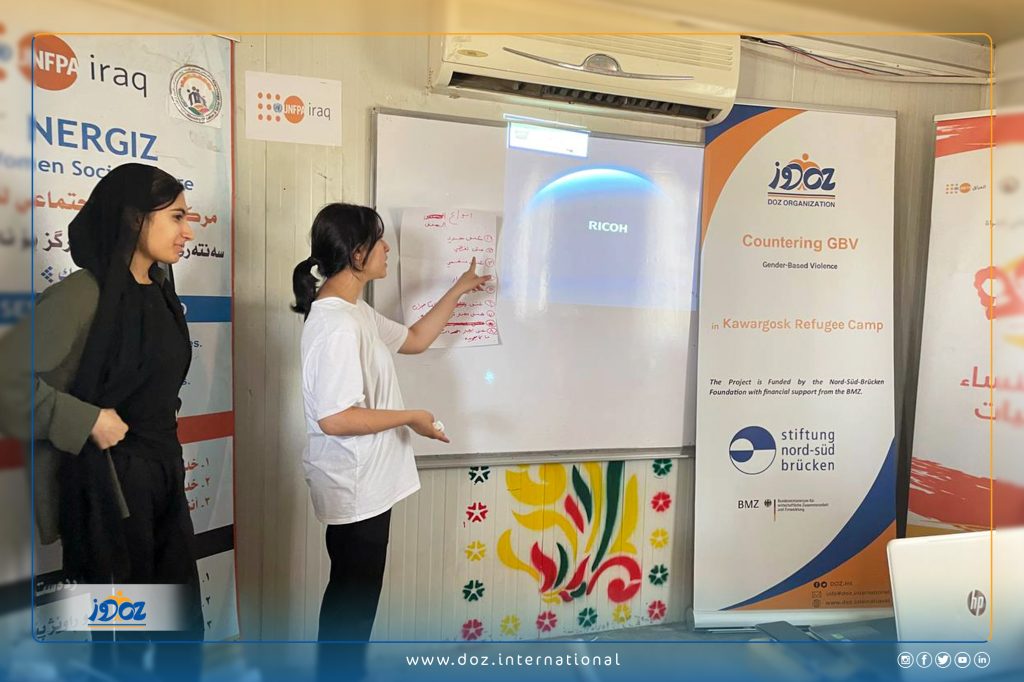
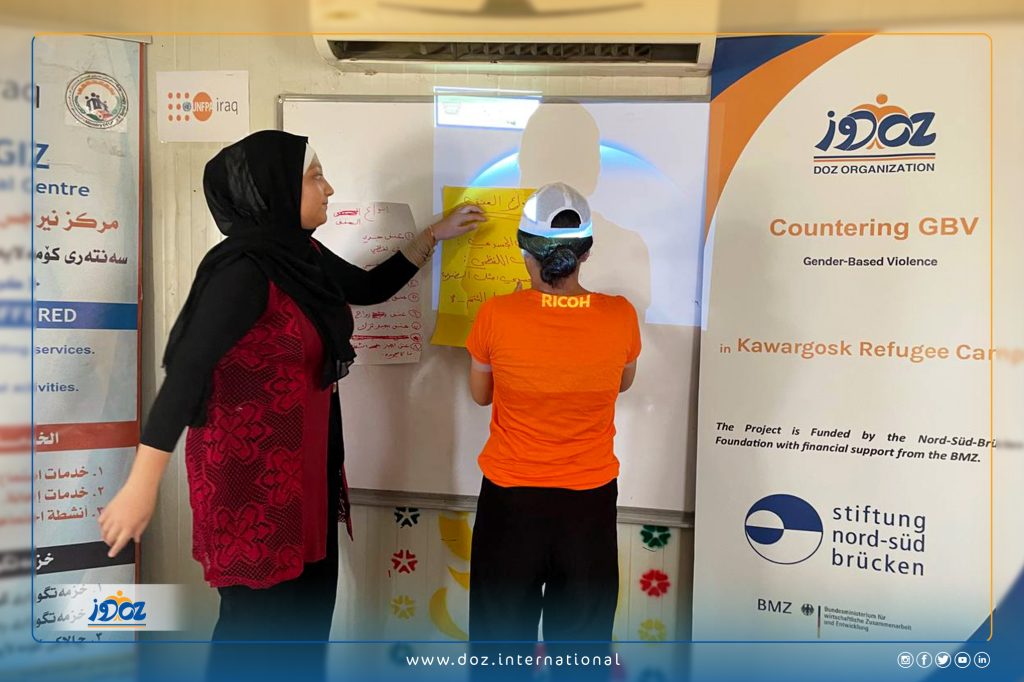
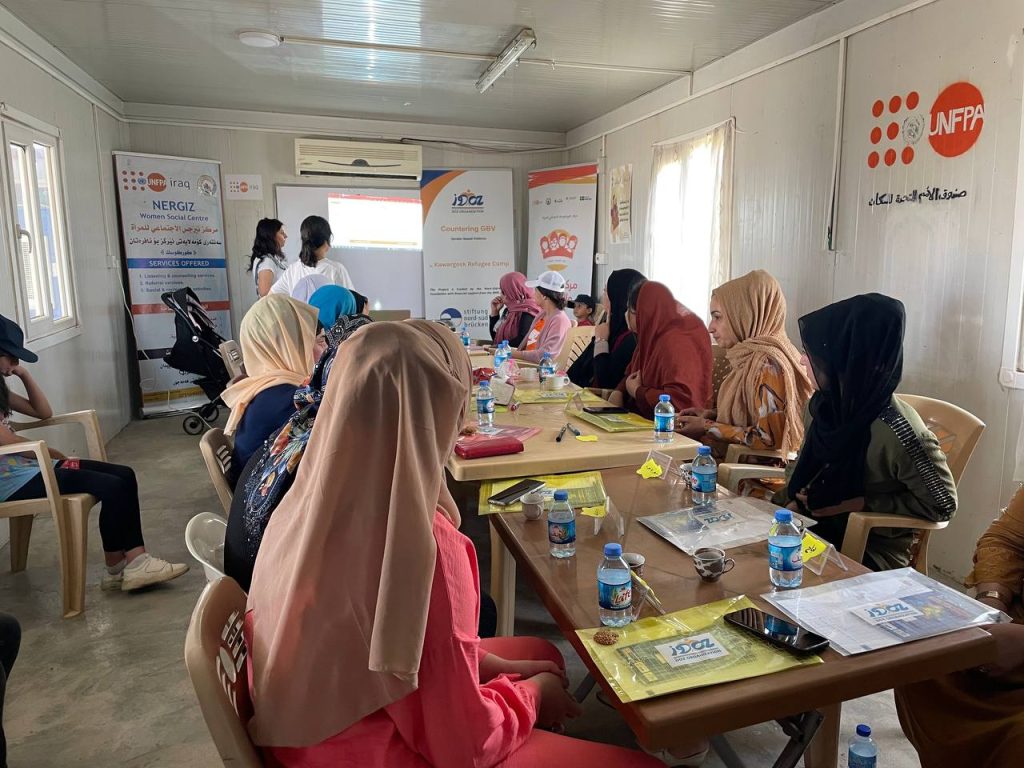
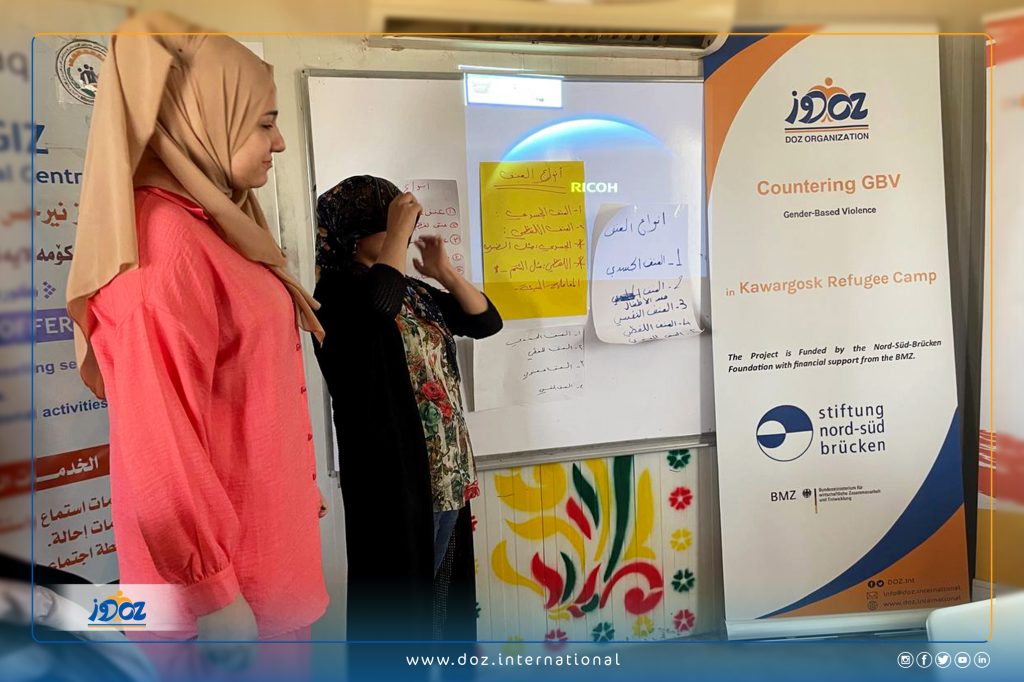
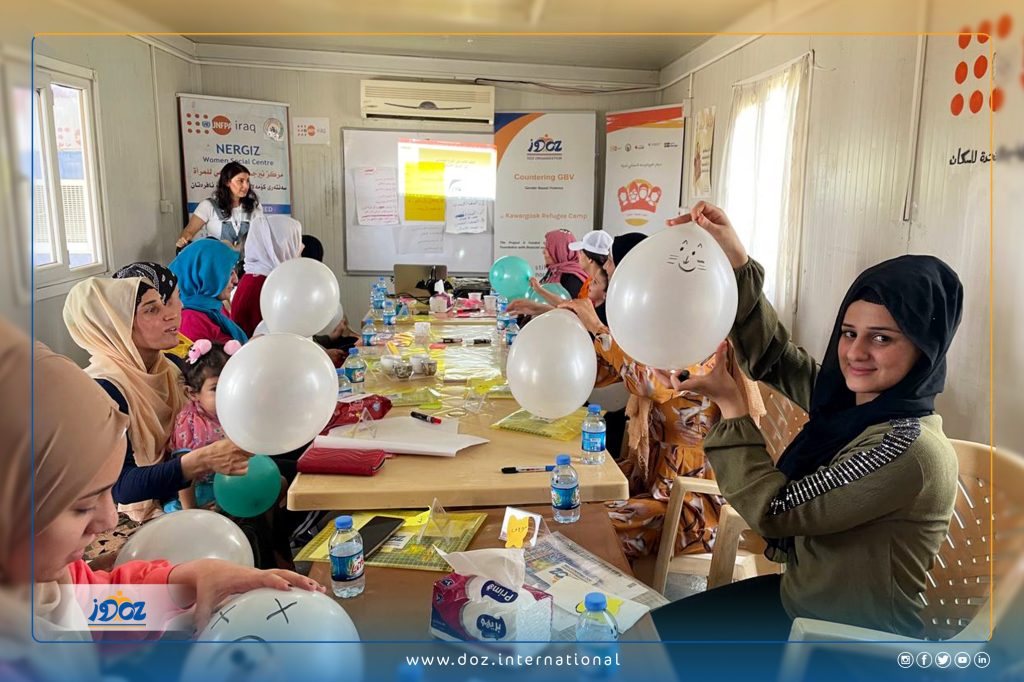
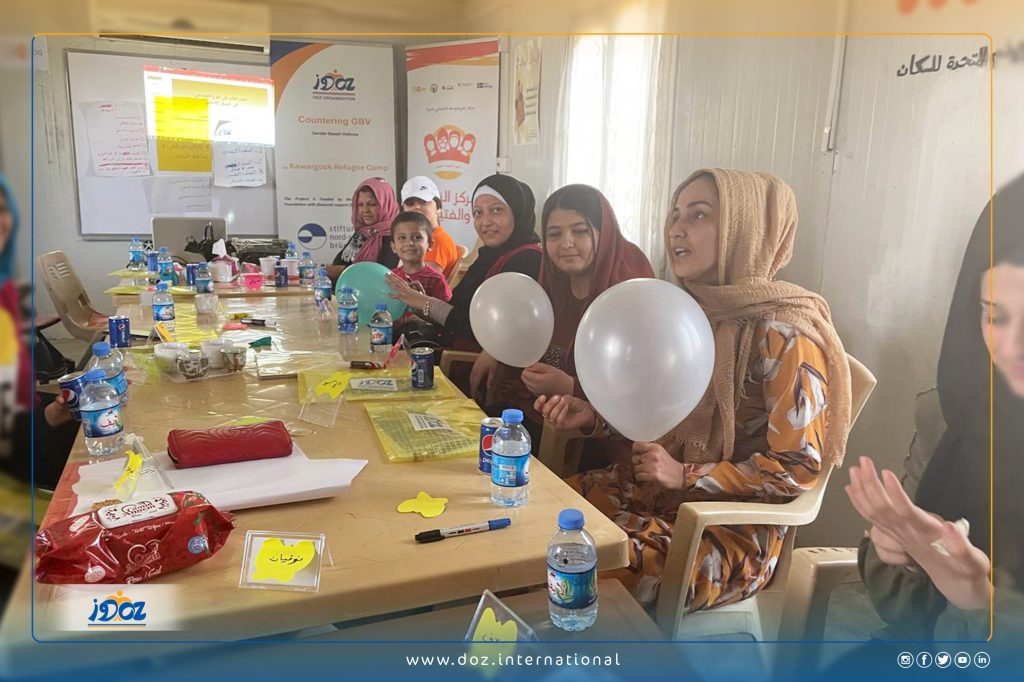
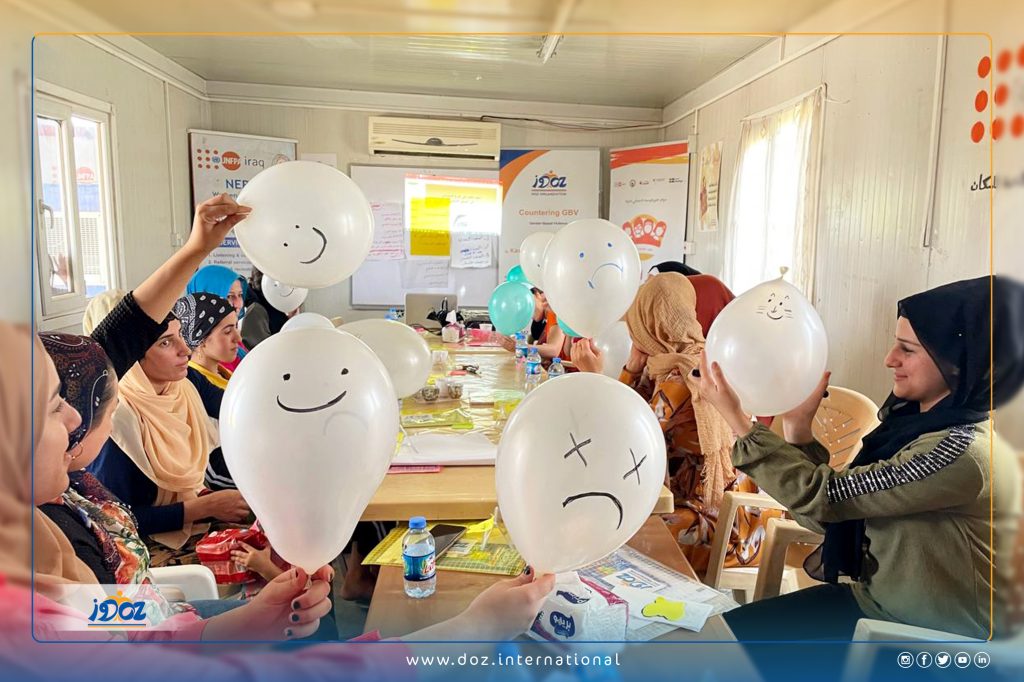
Photo Highlights During Forth Workshop










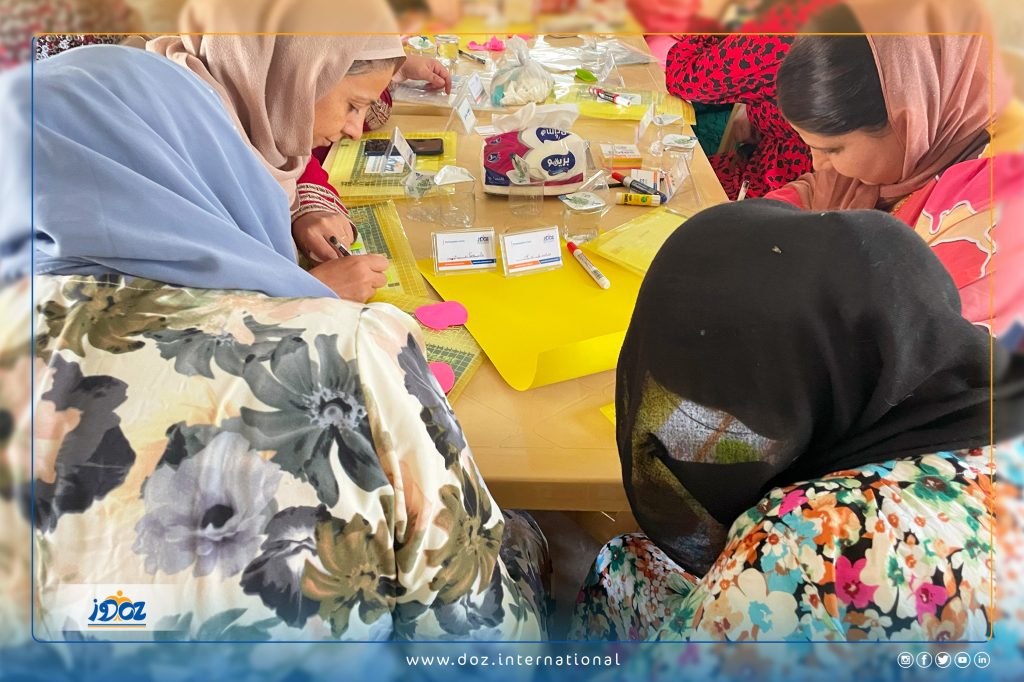


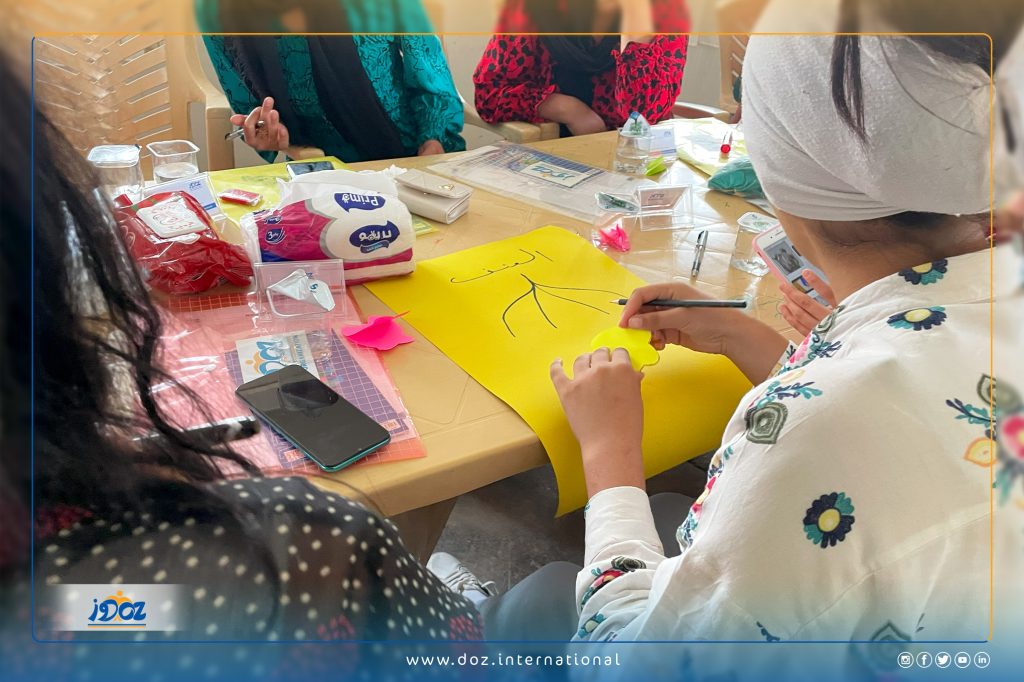

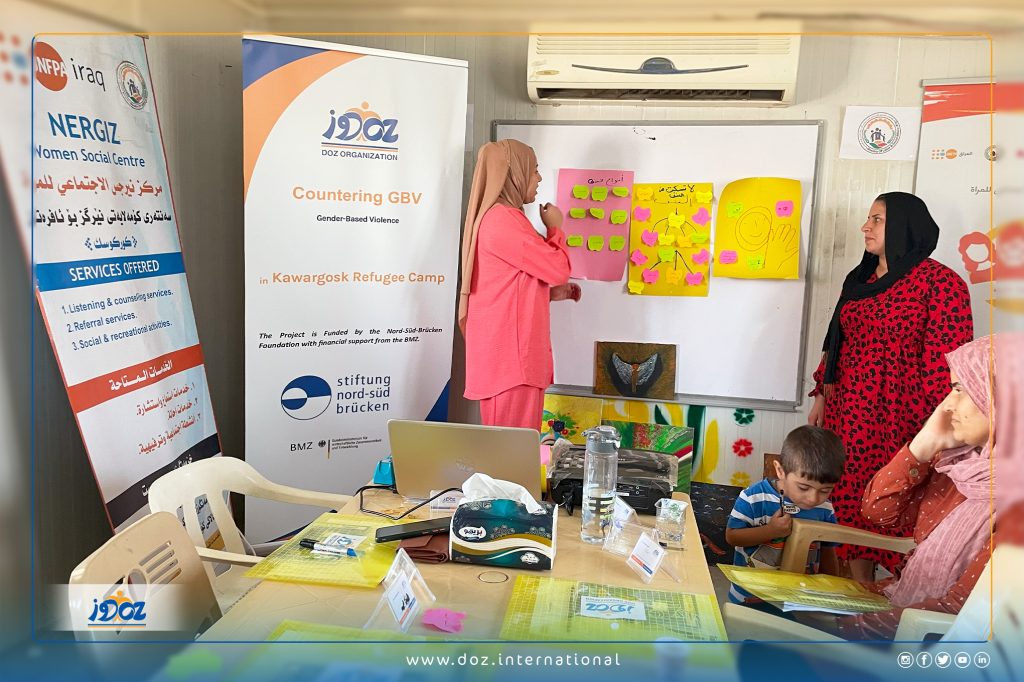
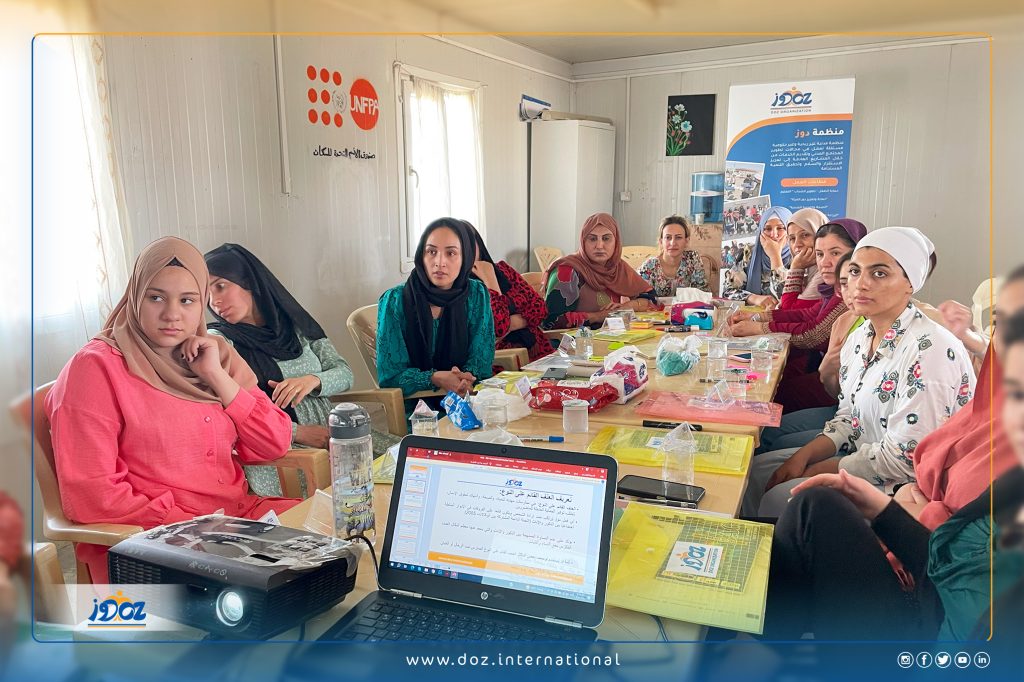
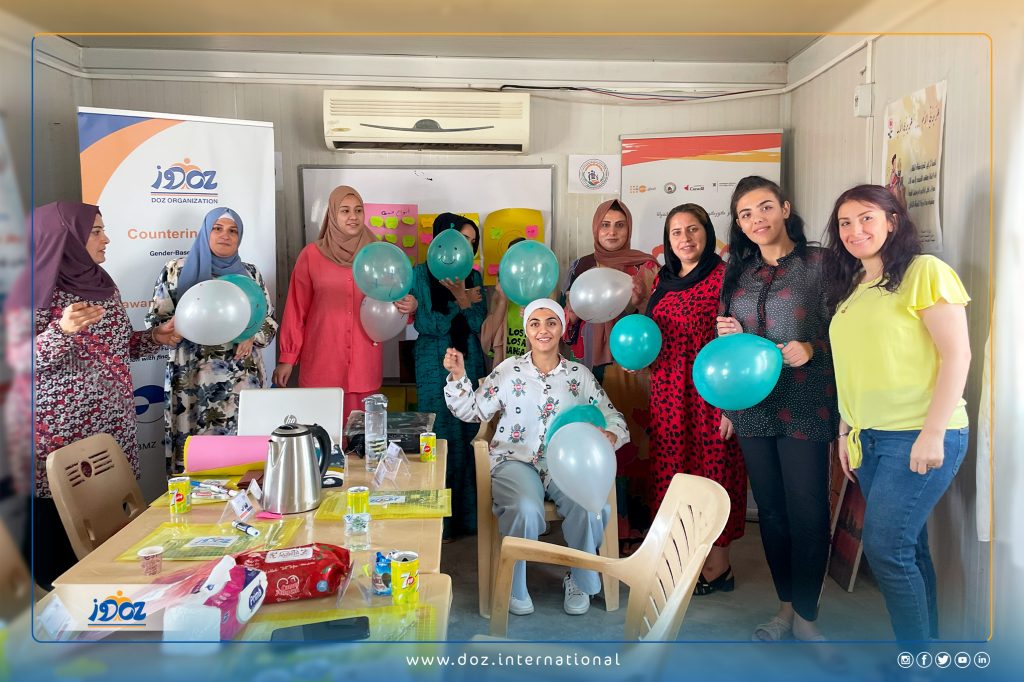
Photo Highlights During Fifth Workshop
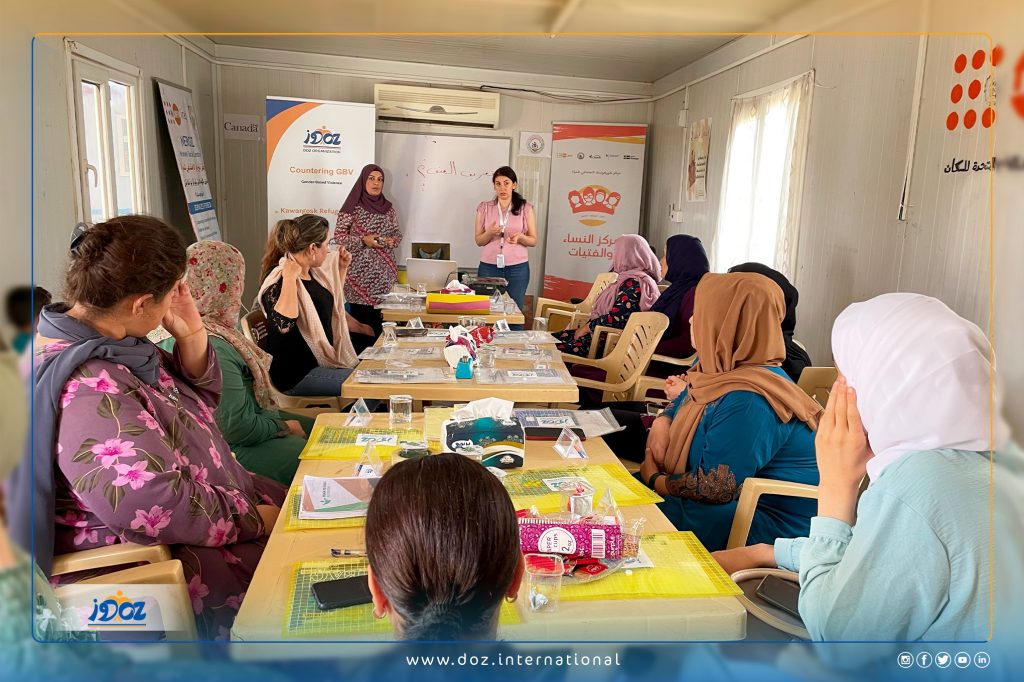

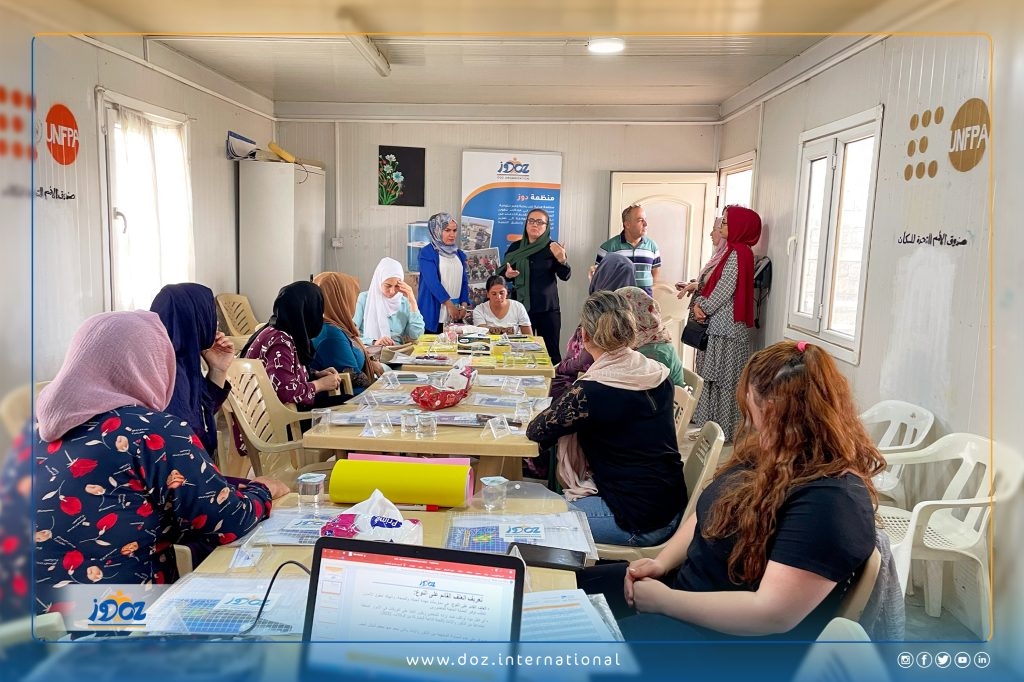

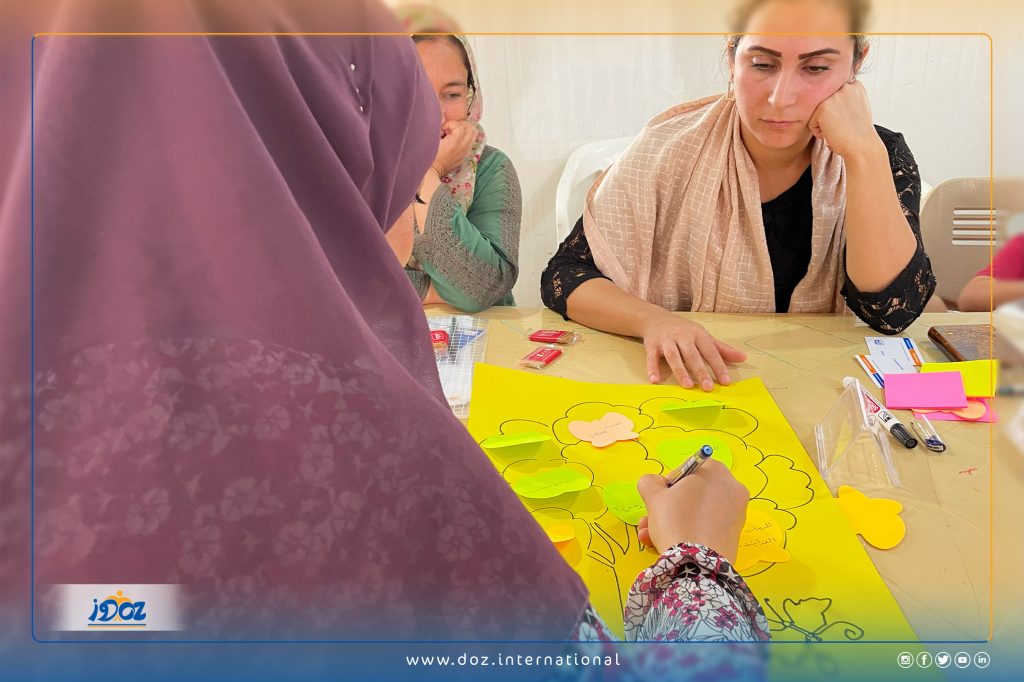


Final Event – Open Day Highlights
Open Day Event for Awareness on Gender-Based Violence (GBV) Issues.
The Open Day Event for Awareness on Gender-Based Violence (GBV) Issues was organized by DOZ Iraq to raise awareness, educate, and engage the community in discussions surrounding GBV. The event was held on August 31, 2023, at Kawargosk and aimed to foster a safe and supportive environment for dialogue while offering various activities to educate and entertain attendees of all ages.
Event Highlights:
Art and Awareness Corner:
The Art and Awareness corner featured a collection of artworks, photographs, and handmade that highlighted the impact of GBV on individuals and communities. Local artists and activists contributed their work, which served as a powerful medium to convey the message against GBV. Attendees were encouraged to interact with the exhibits, sparking conversations about the issue.
Face-painting Corner for Children:
Recognizing the importance of involving children in discussions about GBV, a face-painting corner was set up for the young attendees. Skilled face painters adorned children’s faces with symbols and messages of love, respect, and equality. In this corner, children got chances to express their thoughts and feelings through drawing on paper as well. This corner aimed to create a welcoming and child-friendly atmosphere while subtly conveying the importance of preventing GBV from an early age.
Panel Discussions Corner:
The Panel Discussions Corner hosted a series of engaging and informative discussions featuring experts, survivors, and activists. Topics included the root causes of GBV, the role of the community in prevention, and strategies for supporting survivors. Attendees had the opportunity to ask questions and engage in open dialogue with the panelists, promoting a deeper understanding of the issue.
Stories and Recreation Corner:
To provide a balance of education and recreation, the Stories and Recreation Corner offered a relaxing space where attendees could unwind. Participants shared personal stories related to GBV, fostering a sense of empathy and solidarity. Recreational activities such as board games, chair games, Ballons games, and live music performances were also part of this corner, creating an inclusive and supportive environment.
Community Engagement:
The event attracted a diverse audience, including community members, students, activists, and families. The interactive nature of the event encouraged attendees to actively participate, share their thoughts, and learn from one another. Many attendees expressed gratitude for the safe space to discuss GBV openly and appreciated the informative sessions.
Outcome and Impact:
The Open Day Event for Awareness of Gender-Based Violence Issues achieved several positive outcomes:
Increased awareness: Attendees left with a better understanding of GBV and its consequences.
Empowerment: Survivors and community members felt empowered to take action and support one another.
Fostering dialogue: The event served as a catalyst for ongoing conversations within the community about GBV prevention and support.
Strengthening community bonds: Attendees felt a stronger sense of unity and solidarity within the community.
Conclusion:
The Open Day Event for Awareness on Gender-Based Violence Issues successfully combined art, education, and community engagement to raise awareness and foster dialogue about GBV. The event served as a reminder of the importance of addressing this issue and working collectively to prevent and eliminate gender-based violence from our communities.


